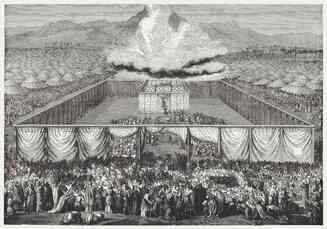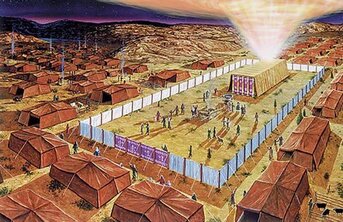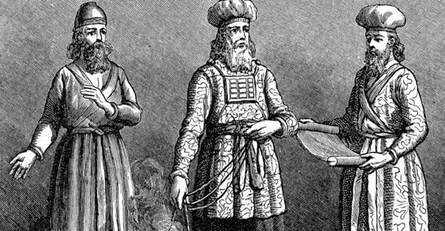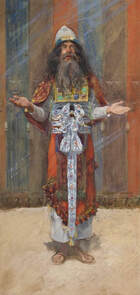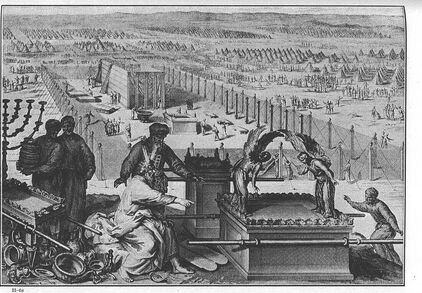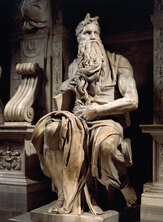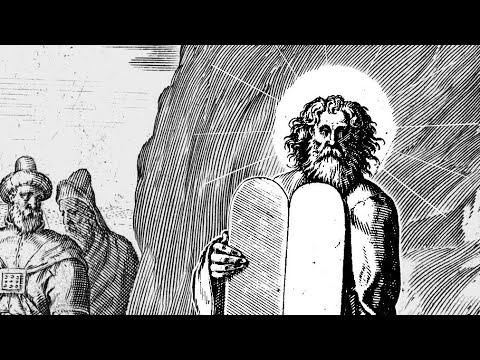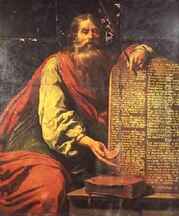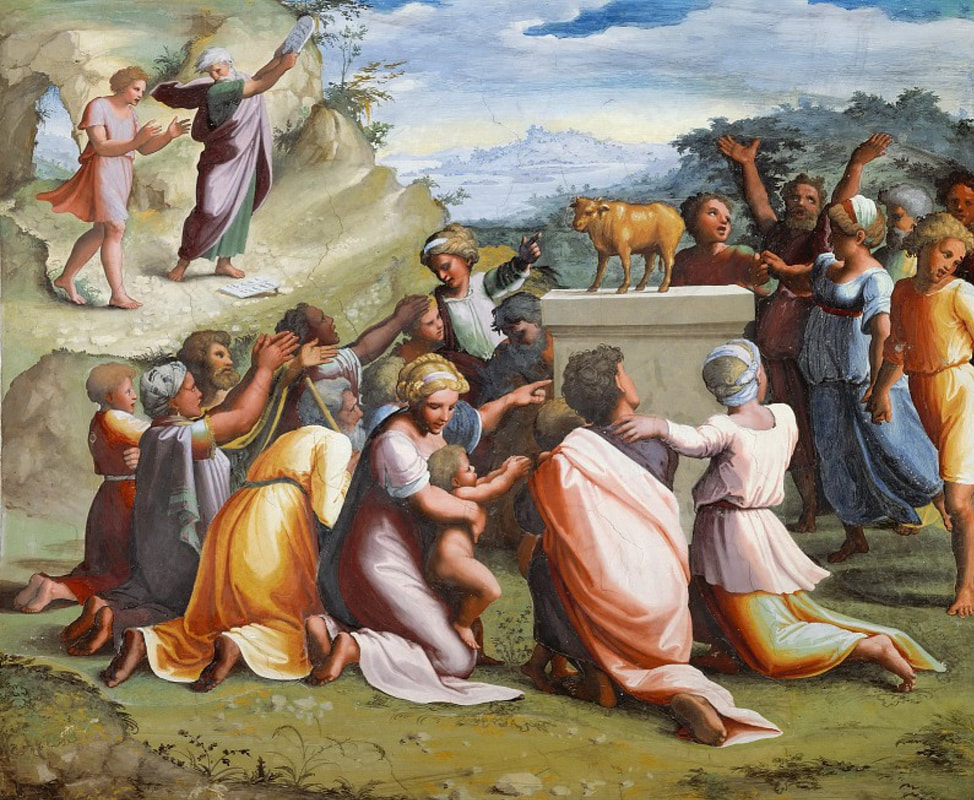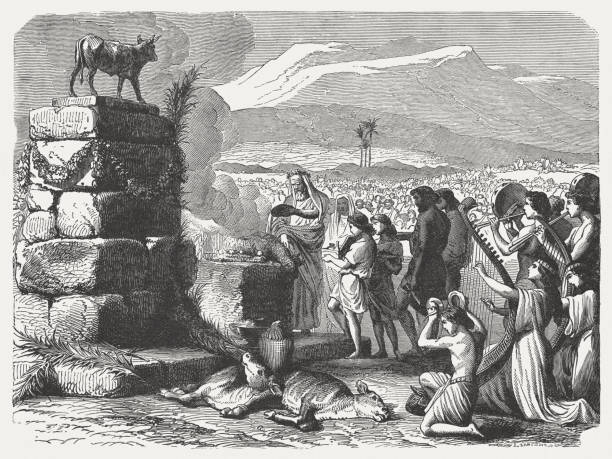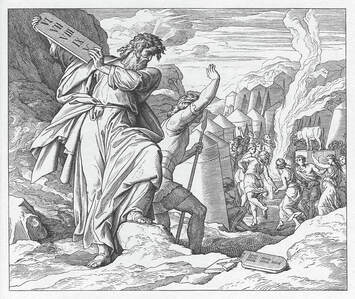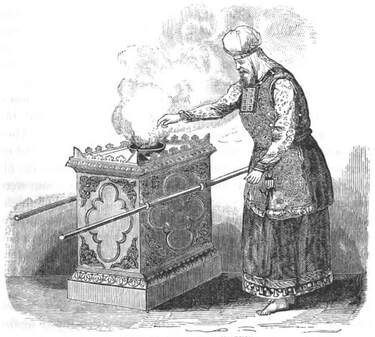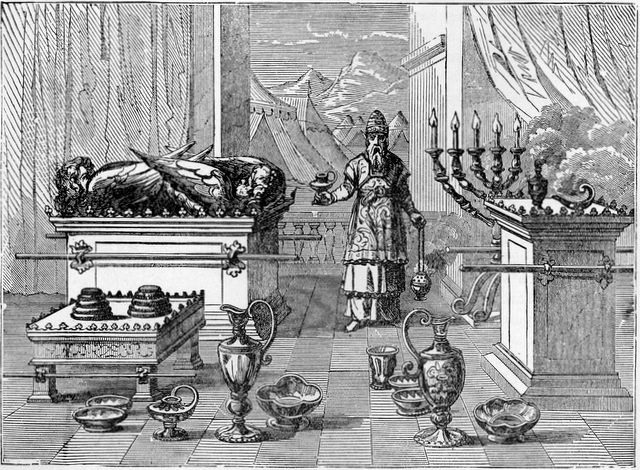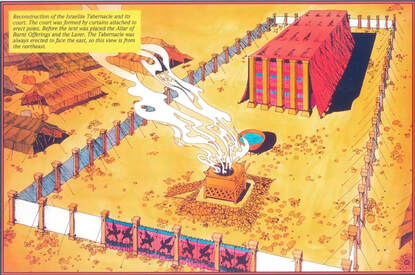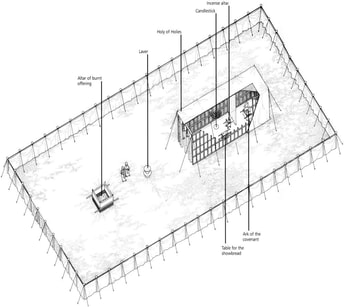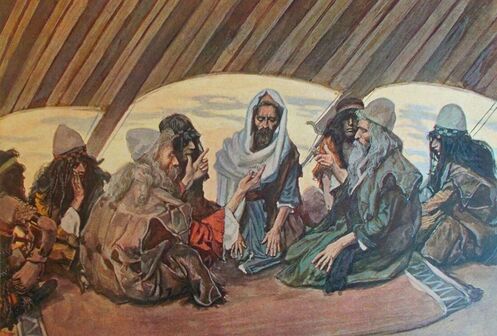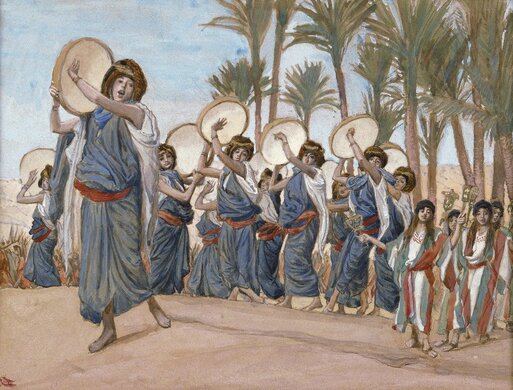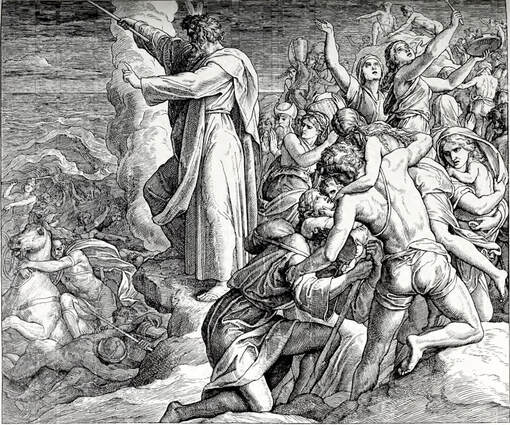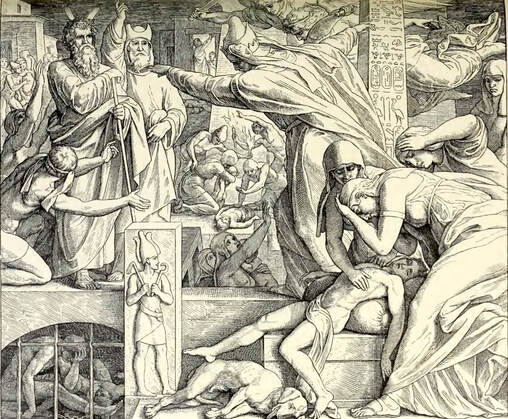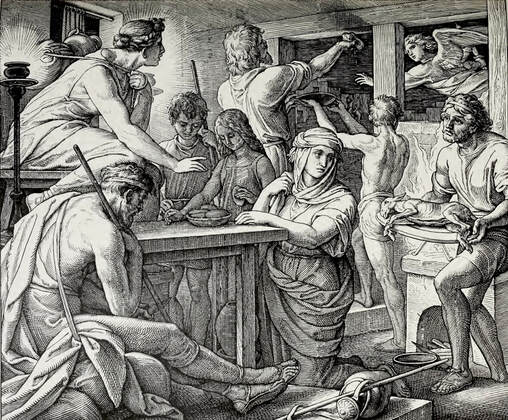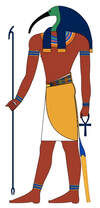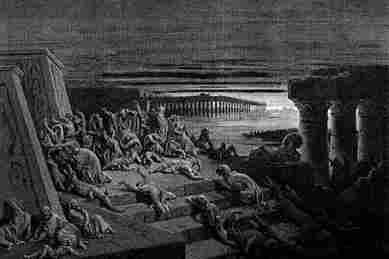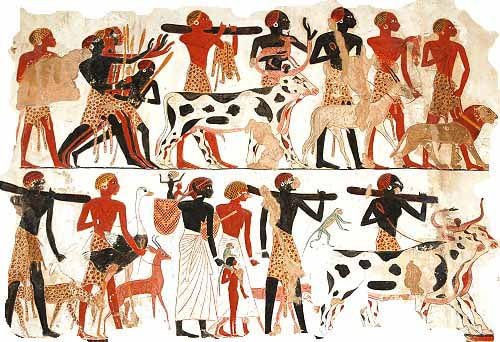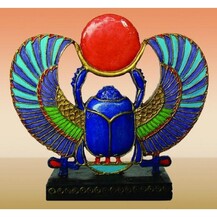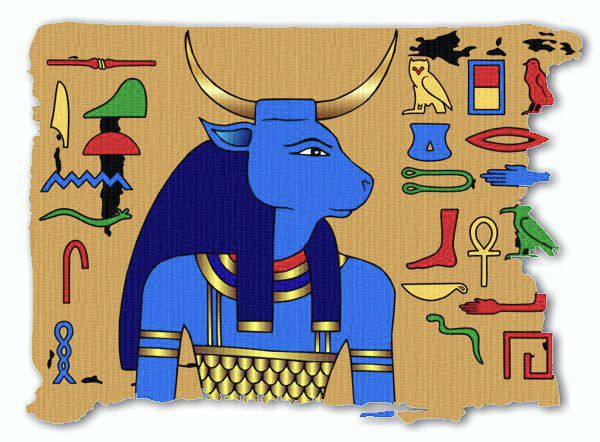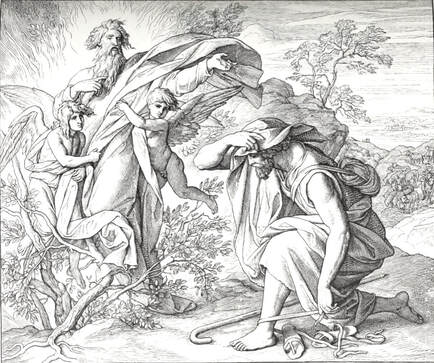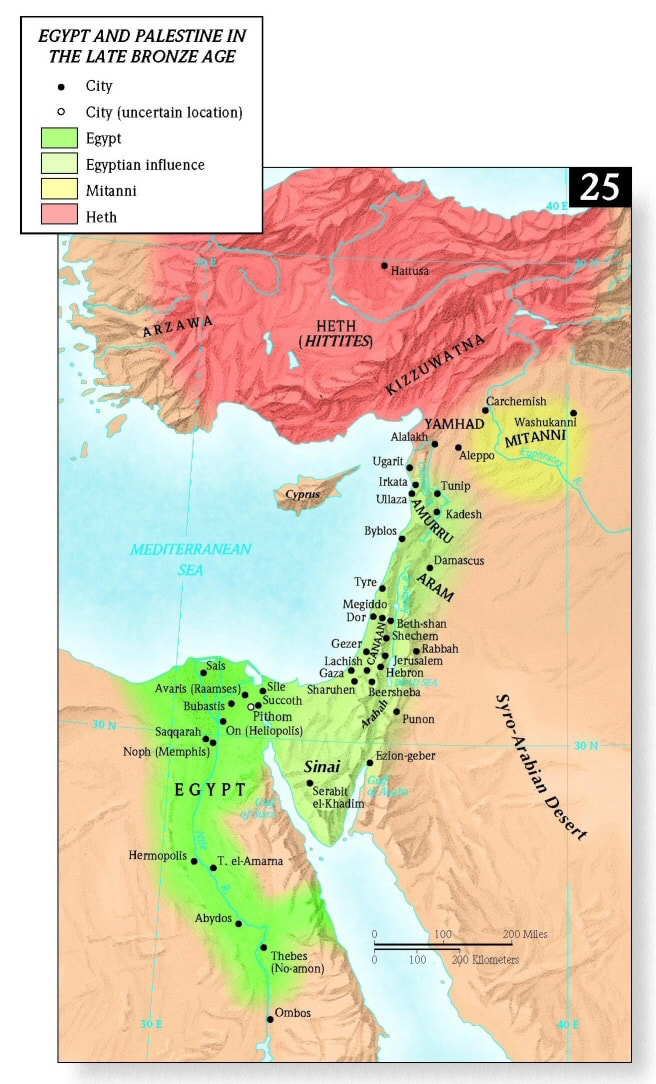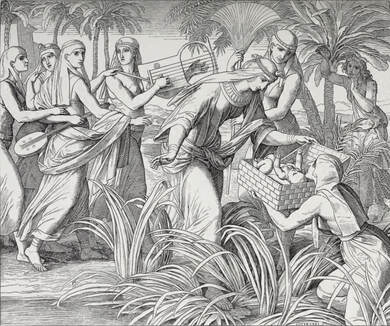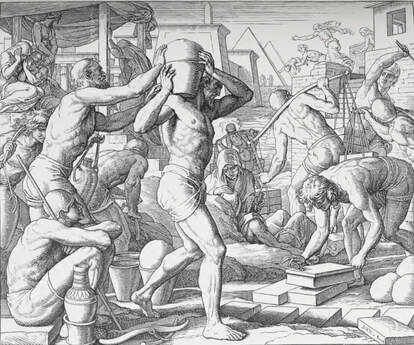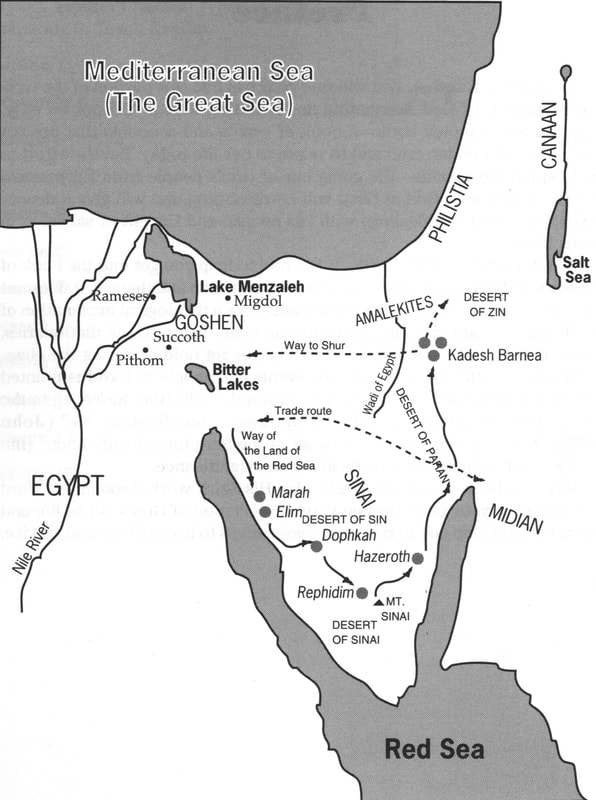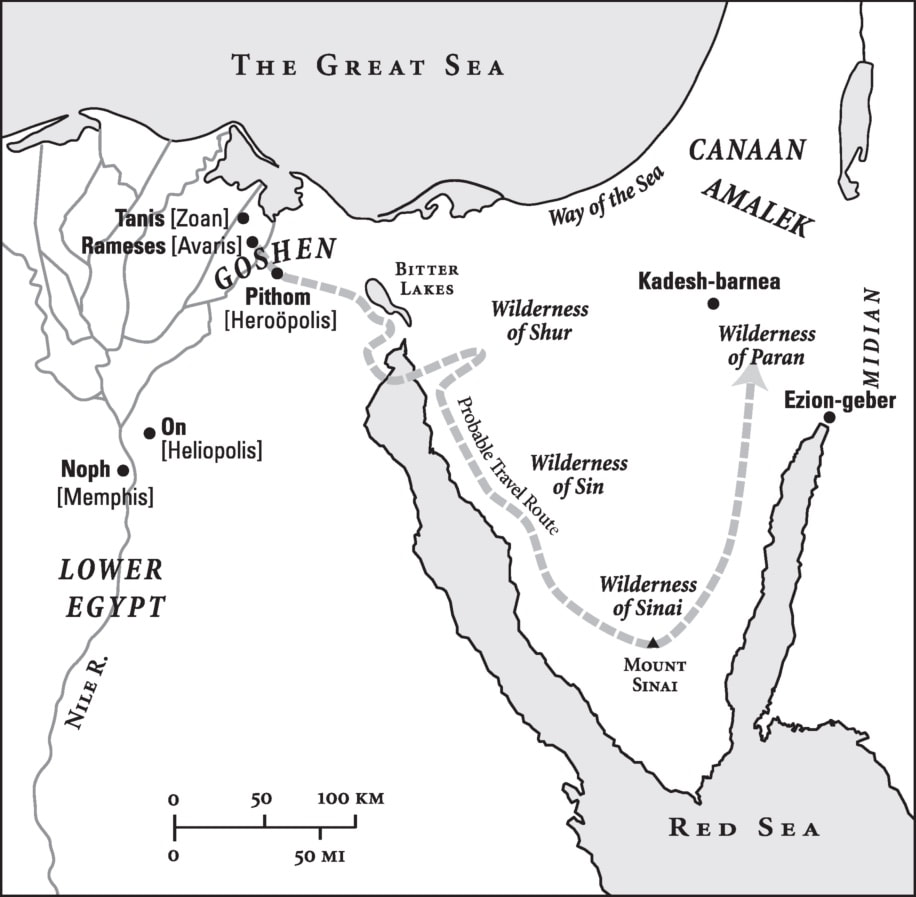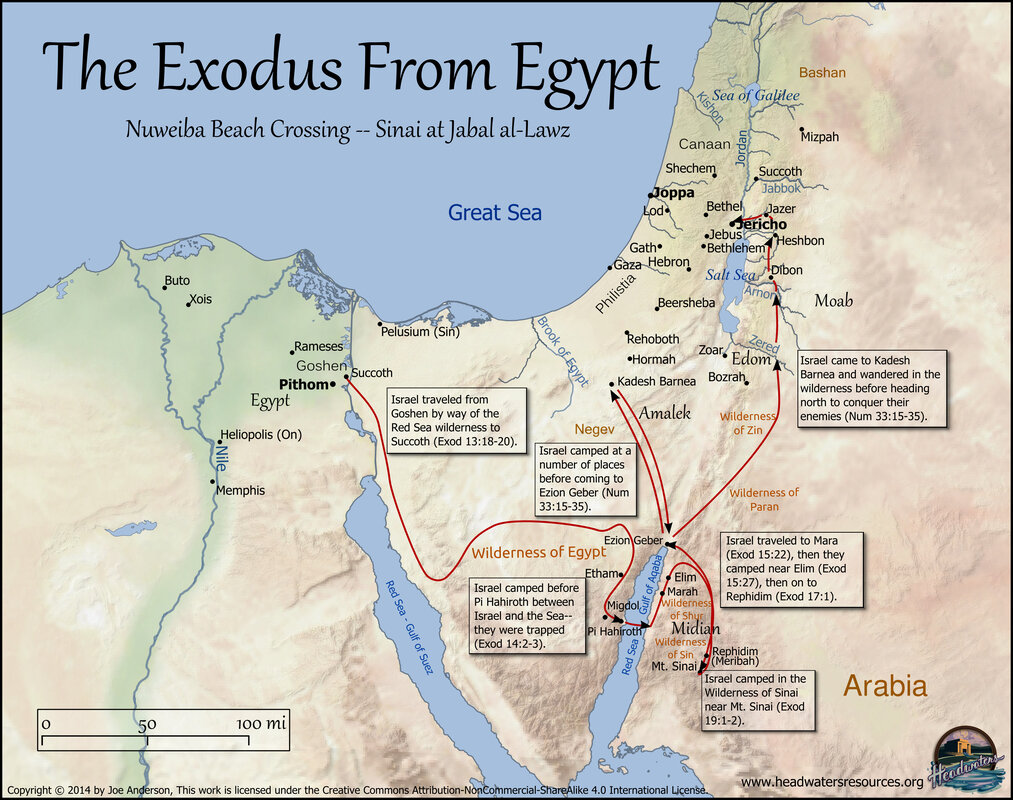Bible Study on Exodus
25. Dedicating the Tabernacle: Time for Praise and Reflection Exodus 39:32-40:38
Dedications of new churches are special. Such services evoke pride and appreciation. But with every privilege and blessing from God comes new responsibilities. Our church buildings, in a sense, call us to faithful worship, witness and obedience to God's will. Although God's glory may not be visible, it is present with us. Join with Moses and the Israelites in this study and celebrate God's goodness to them and to us.
Dedications of new churches are special. Such services evoke pride and appreciation. But with every privilege and blessing from God comes new responsibilities. Our church buildings, in a sense, call us to faithful worship, witness and obedience to God's will. Although God's glory may not be visible, it is present with us. Join with Moses and the Israelites in this study and celebrate God's goodness to them and to us.
- In what circumstances have you especially felt God's presence, and why?
- Read Exodus 39:32-43. What feelings do you think the Israelites had in working "just as the Lord had commanded" and in showing their work to Moses?
- Read Exodus 40:1-33. Why was it necessary to anoint everything, to burn incense and make offerings (Exodus 40:9-10, 26-29)?
- Buildings and furnishings today are not holy in the same way as the tabernacle and its furnishings were. What are the components of God's dwelling place today (Eph. 2:19-22)?
- What care are we to take in constructing God's dwelling place, and why (1 Cor. 3:9-17)?
- Read Exodus 40:34-38. The glory of the Lord has moved from the mountain to the tabernacle. Why?
- What do you think "the glory of the Lord" resembled?
- How does God reveal his glory and presence in our midst today?
- Imagine the feelings of the Israelites on this day. What reasons would they have had for these feelings?
- Thirteen chapters of Exodus deal with the tabernacle and the priesthood. What important lessons did God intend for his people to learn through them?
- One commentator states, "The purpose of Exodus is to show how God delivered his people from slavery in Egypt so he could dwell with them in the tabernacle." What are your thoughts on that?
- What major lessons has God taught you about your life with him through studying Exodus?
|
24. God Speaks Powerfully in Wood, Gold, Silver, Linen, and Wool: Exodus 37:1-39:31
How important is the furniture in your church? What about the clothes people wear? What do they say to you and others? In God's plan for Israel's worship, he spoke powerfully through furniture and clothing. In baptism, God has also given us spiritual dress—both inner qualities and outward deeds—to help people know and understand Him. He also speaks to us in the beauty of the sanctuary. This study looks at outward things, so look for their hidden meaning and significance. The medium is the message in this case. Luther quote: "The prince should think: Christ has served me and made everything to follow him; therefore, I should also serve my neighbor, protect him and everything that belongs to him. That is why God has given me this office, and I have it that I might serve him. That would be a good prince and ruler. When a prince sees his neighbor oppressed, he should think: That concerns me! I must protect and shield my neighbor....The same is true for shoemaker, tailor, scribe, or reader. If he is a Christian tailor, he will say: I make these clothes because God has bidden me do so, so that I can earn a living, so that I can help and serve my neighbor. When a Christian does not serve the other, God is not present; that is not Christian living." |
- How could a cabinetmaker and a seamstress glorify God in their work?
- Read Exodus 37-38. How would the ark, table, lampstand, altar of incense and altar of burnt offering assist the Israelites in their worship of God?
- What aspect of God's nature and character does each article depict?
- How does each article illustrate some aspect of our own relation to God?
- What advantages do we have in knowing and worshiping God that the Israelites did not have (Hebrews 9:1- 15)?
- Read Exodus 39. What message was God trying to convey about himself and worship through the ephod, breastpiece, robe, and tunic of the priests?
- The New Testament refers to Christians as priests (1 Peter 2:5, 9). What is our function as priests?
- What priestly garments are we called to wear (Col. 3:12-14)?
- How would these qualities help us in our role as priests?
- Fine linen (Exodus 38:9; Exodus 39:3, 5, 8, 27) appears again at the consummation of God's plan for his people. It will be the clothing of Christ's bride, the church. What does it represent (Rev. 19:8)?
- As one of God's saints, what does the significance of fine linen inspire you to do and to anticipate?
23. Building the Tabernacle: More Than Enough to Do the Job Exodus 35-36
Hardly a day passes that we aren't asked to contribute to some worthy cause, or implored to work on a needed project. The avalanche of appeals dulls our senses and makes it hard to sort out priorities. It's tempting to do nothing. In this study, God launches a tabernacle building project. He asks for money (donated goods) and services (labor). Israel was called a "stiffed-necked people"—not the best prospects for a building fund drive— but their response to God is surprising.
Hardly a day passes that we aren't asked to contribute to some worthy cause, or implored to work on a needed project. The avalanche of appeals dulls our senses and makes it hard to sort out priorities. It's tempting to do nothing. In this study, God launches a tabernacle building project. He asks for money (donated goods) and services (labor). Israel was called a "stiffed-necked people"—not the best prospects for a building fund drive— but their response to God is surprising.
- For self-reflection: To what needs are you giving time or money, and why?
- Read Exodus 35:1-29. What was God's plan for the provision of materials (Exodus 35:4-9)?
- What factors would an Israelite weigh in deciding whether or not to give?
- Of what value and importance would it be for the Israelites to give their own possessions and to build the tabernacle themselves (Exodus 35:10)?
- The Israelites responded to God's call for an offering (Exodus 35:20-29). How do you account for this outpouring of goods and materials (see Exodus 36:3-7)?
- In God's plan, how was it possible for everyone to give something (see Exodus 3:21-22; Exodus 12:35-36)?
- Read Exodus 35:30-36:7. How did the nomadic Israelites—shepherds in Egypt for more than four centuries—suddenly develop skills in design, building and craftsmanship (Exodus 35:30-35)?
- Who came to do the work (Exodus 36:1-2)? What problem did they encounter (Exodus 36:3-7)?
- Read Exodus 36:8-38. What impressions of the design and beauty of the tabernacle do you gain from this description?
- For self-reflection: What possessions and abilities do you have for God to use? What has he shown you about how to use them for his service?
- What keeps God's people today from giving willingly, sacrificially and generously?
- What would it take in your church to produce an outpouring of goods and services for God's use, like that of the Israelites (see 2 Cor. 5:14-15, 2 Cor. 8:1-5)?
22. Renewing the Covenant: God Reveals His Nature and Laws Again Exodus 34
The cynical statement of some historians is that treaties are made to be broken. Sadly, that's often been the case. Man's record of keeping treaties is abysmal, but nations keep on making treaties, hoping for a more secure future. Israel fell into idolatry and soon broke faith with God (Exodus 19:8; Exodus 24:3). Likewise, we can recall solemn vows and promises shattered by expediency, fear and unfaithfulness. But God doesn't quit on us. That's not his nature. In this study, he calls Moses to the mountain a second time and reaffirms principles of holy living.
The cynical statement of some historians is that treaties are made to be broken. Sadly, that's often been the case. Man's record of keeping treaties is abysmal, but nations keep on making treaties, hoping for a more secure future. Israel fell into idolatry and soon broke faith with God (Exodus 19:8; Exodus 24:3). Likewise, we can recall solemn vows and promises shattered by expediency, fear and unfaithfulness. But God doesn't quit on us. That's not his nature. In this study, he calls Moses to the mountain a second time and reaffirms principles of holy living.
- Think of an experience in which you were given a second chance. How did it make you feel? Why?
- Read Exodus 34:1-9. In order to meet God, what was required of Moses, and why (Exodus 34:1-3)?
- How would you describe God, based on what he proclaimed to Moses (Exodus 34:6-7)? Why did Moses need this reminder?
- How can we develop an appreciation for each aspect of God's nature?
- What request did Moses make, and why (Exodus 34:8-9)?
- Read Exodus 34:10-28. How would you summarize the covenant God made with Israel?
- Of all the laws previously given, why do you think these are emphasized at this time?
- God calls us to live among those who do not honor his name (John 17:14-16). In what ways can they be a "snare" for us (Exodus 34:12)?
- What principles of godly living in the New Testament would correspond to God's concern for Israel here (Galatians 5:16-26; Eph. 4:20-32)?
- Read Exodus 34:29-35. What effect did this meeting with God have on Moses, the leaders and the people (Exodus 34:29-32)?
- Why did Moses veil His face? See also 2 Cor 3:7-18. (Interesting side note: The Hebrew word for radiant is derived from the same word in Hebrew which means "horn". Thus some paintings and sculptures of Moses portray him with horns on his head.)
- What practice was then established, and why (Exodus 34:33-35)?
- How are we able to reflect God's glory and how do we reflect His glory?
- God gave Israel a second chance, so to speak. What does this fact indicate about God's relationship with us?
The Glory of the Lord as "seen" by Moses.
From The Glory of the Lord by August Pieper, translated by Carl Lawrenz. Full text.
---
The Lord said to Moses: “I will make all my goodness pass before thee, and I will proclaim the name of the Lord before thee; and (namely that I) will be gracious to whom I will be gracious, and will shew mercy on whom I will shew mercy.” These three sentences all proclaim the same thing, only in ever-greater precision. If in the first sentence others wish to render “goodness” with “beauty” (the beauty of the Lord) then this is to parallel it with the expression “thy glory” in Moses’ prayer. The Lord Himself contrasts that which He wishes to reveal to him concerning Himself with the “glory” of God so unconsciously desired by Moses. In the Hebrew the expression that is used can signify both. The goodness or the beauty of God is that which He proclaims regarding Himself in the next two sentences and in chapter 34:6, 7. Earlier (Exod. 3:14, 15) He has summed it up in the one name which He Himself revealed, the name Jehovah as the God of Abraham, Isaac, and Jacob, and its significance is free but never vacillating grace. He became the God of Abraham, Isaac, and Jacob out of free, entirely free choice, because it so pleased Him, not because they had in any way deserved it of Him. He maintained this grace toward them and did not break it, though they fell into great sins afterwards. So He has had mercy on their children, this people of Israel, out of absolutely unmerited grace, though He knew their stiff-neckedness beforehand, and He wants to keep this grace toward them in spite of their stiff-neckedness until He will have fulfilled everything in them that He has promised them. That is His goodness or beauty. This goodness or beauty Moses should see, experience; this goodness or beauty He wishes to reveal to him in its entire fullness and Himself preach to him. This goodness or beauty Moses is also to preach to the people, and He will make it all come true upon them through actual bestowment of love and wrath, of blessing and chastisement, through the preachment of Gospel and Law.
“(But), ” spoke the Lord further, “thou canst not see my face: for there shall no man see me, and live.” These words, taken in their context, are now clear in themselves. Not under discussion is the way in which we poor sinners shall see God face to face (I Cor. 13:12) when we shall one day be exalted with Christ to glory and shall see the Father “as he is,” I John 3:2. Meant is that seeing of God which Moses sought in a lack of understanding, to comprehend Him through insight into His way, His secret divine counsel (verse 13), His mind, and His innermost thoughts. Concerning this God says later through Isaiah 40:13, 14, Jeremiah 23:18, and Paul (Romans 11:33, 34): “Who hath known the mind of the Lord?” Who dwells, “in the light which no man can approach unto; whom no man hath seen, nor can see”? (I Timothy 6:16; John 1:18; I John 4:12.) To know God thus, to comprehend Him, would mean to push Him from His throne and to set one’s self in His place. Since this is impossible, only the other thing could happen: the one beholding would have to die. The way Moses desired to see God no finite creature, no angel, no saint in heaven beholds Him. Also what Israel beheld in the so-called “glory of the Lord,” what the prophets and apostles, Paul at Damascus and when he was caught up to the third heaven (II Corinthians 12), John in Revelation beheld of God was nothing else than pictures and human disguises of God.
But still the Lord does want to let Moses see His real glory. “Behold, there is a place by me, and thou shalt stand upon a rock: and it shall come to pass, while my glory (ְכּבִֹדי ) passeth by, that I will put thee in a clift of the rock, and will cover thee with my hand while I pass by: and I will take away mine hand, and thou shalt see my back parts: but my face shall not be seen.” Yes, there is a way of beholding God’s glory, His way and counsel, His thoughts and plans. It consists in this that one looks after God from behind when He has already passed by. This is the knowledge of God’s ways and thoughts drawn from the past history of the great deeds of God in behalf of His people and the nations of the earth, compare Acts 2:11. The world has a history. It is not eternal and unchangeable; it has come into being, come into existence in and with time; and it exists only amidst ceaseless change in all of its parts and relationships. In a certain sense we speak quite properly of an evolution of things, except that with our tiny reason we are not able to foresee its extent and goal in advance. Even as the world has not called itself into being by itself, so it also does not evolve by itself. There is another who drives the wheel and does everything that transpires in, under, and above the heavens, both the great and the small. And even as the works of nature on the earth and in the heavens declare the glory of the great God, so also the footsteps of God are everywhere and at all times unmistakably imprinted as His and no one else’s upon the history of mankind in things great and small, there for anyone who wants to recognize them and is able to read them aright. There’s the rub, of course. The great majority of people let the great and wise, the scholars do their thinking for them and stupidly babble after them what pleases their evil hearts. In what is nowadays called the Church, often much of the same thing obtains, especially in this that with the modern coryphaei of a “rational religion of morality” people take Christian theology and, without having entered in upon it, dress it up in ever new forms of naked rationalism, just as the women of fashion dress up—and expose—their nakedness in the inadequate or all too scanty garments of the most modern Parisian designers, thereby getting back to the savages. Flesh remains flesh, also when it clothes itself in the elegant garments, of the highest culture and of human reason.
From The Glory of the Lord by August Pieper, translated by Carl Lawrenz. Full text.
---
The Lord said to Moses: “I will make all my goodness pass before thee, and I will proclaim the name of the Lord before thee; and (namely that I) will be gracious to whom I will be gracious, and will shew mercy on whom I will shew mercy.” These three sentences all proclaim the same thing, only in ever-greater precision. If in the first sentence others wish to render “goodness” with “beauty” (the beauty of the Lord) then this is to parallel it with the expression “thy glory” in Moses’ prayer. The Lord Himself contrasts that which He wishes to reveal to him concerning Himself with the “glory” of God so unconsciously desired by Moses. In the Hebrew the expression that is used can signify both. The goodness or the beauty of God is that which He proclaims regarding Himself in the next two sentences and in chapter 34:6, 7. Earlier (Exod. 3:14, 15) He has summed it up in the one name which He Himself revealed, the name Jehovah as the God of Abraham, Isaac, and Jacob, and its significance is free but never vacillating grace. He became the God of Abraham, Isaac, and Jacob out of free, entirely free choice, because it so pleased Him, not because they had in any way deserved it of Him. He maintained this grace toward them and did not break it, though they fell into great sins afterwards. So He has had mercy on their children, this people of Israel, out of absolutely unmerited grace, though He knew their stiff-neckedness beforehand, and He wants to keep this grace toward them in spite of their stiff-neckedness until He will have fulfilled everything in them that He has promised them. That is His goodness or beauty. This goodness or beauty Moses should see, experience; this goodness or beauty He wishes to reveal to him in its entire fullness and Himself preach to him. This goodness or beauty Moses is also to preach to the people, and He will make it all come true upon them through actual bestowment of love and wrath, of blessing and chastisement, through the preachment of Gospel and Law.
“(But), ” spoke the Lord further, “thou canst not see my face: for there shall no man see me, and live.” These words, taken in their context, are now clear in themselves. Not under discussion is the way in which we poor sinners shall see God face to face (I Cor. 13:12) when we shall one day be exalted with Christ to glory and shall see the Father “as he is,” I John 3:2. Meant is that seeing of God which Moses sought in a lack of understanding, to comprehend Him through insight into His way, His secret divine counsel (verse 13), His mind, and His innermost thoughts. Concerning this God says later through Isaiah 40:13, 14, Jeremiah 23:18, and Paul (Romans 11:33, 34): “Who hath known the mind of the Lord?” Who dwells, “in the light which no man can approach unto; whom no man hath seen, nor can see”? (I Timothy 6:16; John 1:18; I John 4:12.) To know God thus, to comprehend Him, would mean to push Him from His throne and to set one’s self in His place. Since this is impossible, only the other thing could happen: the one beholding would have to die. The way Moses desired to see God no finite creature, no angel, no saint in heaven beholds Him. Also what Israel beheld in the so-called “glory of the Lord,” what the prophets and apostles, Paul at Damascus and when he was caught up to the third heaven (II Corinthians 12), John in Revelation beheld of God was nothing else than pictures and human disguises of God.
But still the Lord does want to let Moses see His real glory. “Behold, there is a place by me, and thou shalt stand upon a rock: and it shall come to pass, while my glory (ְכּבִֹדי ) passeth by, that I will put thee in a clift of the rock, and will cover thee with my hand while I pass by: and I will take away mine hand, and thou shalt see my back parts: but my face shall not be seen.” Yes, there is a way of beholding God’s glory, His way and counsel, His thoughts and plans. It consists in this that one looks after God from behind when He has already passed by. This is the knowledge of God’s ways and thoughts drawn from the past history of the great deeds of God in behalf of His people and the nations of the earth, compare Acts 2:11. The world has a history. It is not eternal and unchangeable; it has come into being, come into existence in and with time; and it exists only amidst ceaseless change in all of its parts and relationships. In a certain sense we speak quite properly of an evolution of things, except that with our tiny reason we are not able to foresee its extent and goal in advance. Even as the world has not called itself into being by itself, so it also does not evolve by itself. There is another who drives the wheel and does everything that transpires in, under, and above the heavens, both the great and the small. And even as the works of nature on the earth and in the heavens declare the glory of the great God, so also the footsteps of God are everywhere and at all times unmistakably imprinted as His and no one else’s upon the history of mankind in things great and small, there for anyone who wants to recognize them and is able to read them aright. There’s the rub, of course. The great majority of people let the great and wise, the scholars do their thinking for them and stupidly babble after them what pleases their evil hearts. In what is nowadays called the Church, often much of the same thing obtains, especially in this that with the modern coryphaei of a “rational religion of morality” people take Christian theology and, without having entered in upon it, dress it up in ever new forms of naked rationalism, just as the women of fashion dress up—and expose—their nakedness in the inadequate or all too scanty garments of the most modern Parisian designers, thereby getting back to the savages. Flesh remains flesh, also when it clothes itself in the elegant garments, of the highest culture and of human reason.
21. God's Presence and Glory: Essential Requirement and Goal Exodus 33
I remember taking my son to school the first time. I dragged him all the way. My presence was not enough to enable him to face this terrible prospect. The command to go was clear, but that wasn't enough for him. God commanded Israel to go to the good land he had promised to give them. God's leader asked for God's presence before he would move out. In this study we see more of God's loving patience with Moses and Israel, and how this speaks to our own basic spiritual goals.
I remember taking my son to school the first time. I dragged him all the way. My presence was not enough to enable him to face this terrible prospect. The command to go was clear, but that wasn't enough for him. God commanded Israel to go to the good land he had promised to give them. God's leader asked for God's presence before he would move out. In this study we see more of God's loving patience with Moses and Israel, and how this speaks to our own basic spiritual goals.
- In what circumstances of life might we experience a profound need to be aware of God's presence?
- Read Exodus 33:1-6. What commands, promises and warning did God give Israel?
- What does it mean to be a "stiff-necked people" (Exodus 33:3, 5)? How would such a person be described today?
- What can we do to avoid this condition? Are there situations where it is appropriate to be "stiff-necked"?
- Read Exodus 33:7-11. What occurred at the tent of meeting, and why?
- What is the importance of verse 11? Also consider John 15:15.
- Read Exodus 33:12-23. Look at the development of Moses' requests (Exodus 33:13, 15, 18). How do they increase in spiritual wisdom and depth and reveal Moses' deepest desire?
- What is Moses asking in Ex. 33:18 and what does God offer instead in Ex. 33:19?
- God allowed Moses to hear his name proclaimed (Exodus 33:19). What did this add to their relationship?
- In God's answer to Moses (Exodus 33:19-23), what do you learn about his nature and character?
- What are some examples of God's "glory" being manifested in the New Testament?
- Moses could not see God's face. What is our privilege and responsibility in light of John 1:14, 14:8-14, and Hebrews 1:1-4?
- How are we given to see God's glory in our time?
20. The Golden Calf: Idolatry Takes a Fearful Toll Exodus 32
Probably nothing shocks us as much as defection, rebellion, or betrayal. Selling out to the enemy is hard to understand. Loyalty rightly stands near the top of qualities we admire. When traitors are exposed, we smugly assume that we would never do such a thing. But who knows where we are the most vulnerable? On the heels of glorious triumph, Israel plunged into idolatry on the flimsiest of excuses. God's nation flunked the loyalty test, with disastrous consequences.
Probably nothing shocks us as much as defection, rebellion, or betrayal. Selling out to the enemy is hard to understand. Loyalty rightly stands near the top of qualities we admire. When traitors are exposed, we smugly assume that we would never do such a thing. But who knows where we are the most vulnerable? On the heels of glorious triumph, Israel plunged into idolatry on the flimsiest of excuses. God's nation flunked the loyalty test, with disastrous consequences.
- It's been said that every person has a price. In what areas might Christians today be most susceptible to betraying (or denying) God, and why?
- Read Exodus 32:1-6. Who instigated the idolatry, and why (Exodus 32:1)?
- Why do you think Aaron went along with it (Exodus 32:2-6)?
- Luther places worshipping a false god and false worship of the true God both under the prohibitions of the 1st commandment. Which of these two forms of idolatry is taking place here?
- Read Exodus 32:7-14. What impresses you about the dialog between God and Moses (Exodus 32:9-14)?
- In what ways can we emulate Moses in our relation to God and in our care for sinning people?
- Read Exodus 32:15-24. How did Moses react when he saw the Israelites' idolatrous worship (Exodus 32:19- 24)?
- Why do you think Aaron lied to Moses (Exodus 32:22-24)?
- What positive and negative examples of spiritual leadership do you see here?
- Read Exodus 32:25-35. How was God's judgment against idolatry carried out (Exodus 32:27-28, 35)?
- What did it cost the Levites to take a public stand for God?
- Moses offered his life to atone for Israel's sin (Exodus 32:30-32). What did God promise instead (Exodus 32:33-34)?
- What character qualities does Moses demonstrate in this incident? How do you account for them?
- What spiritual disciplines help Christians today maintain faithfulness to God?
19. Planning the Tabernacle: God's Revelation in People and Things, Exodus 29:38-31:18
"Back to the drawing board" is often said after a failed experiment or project. Sometimes Christians behave as though the worship of God is a do-it-yourself project. Some lack a sense of responding to God himself. Church leaders experiment and fiddle with changes in the order of worship. But God is a God of economy and order. No wasted, botched plans or experiments with him. Moses and the Israelites received a specific plan, precise in every detail and dimension. Each part of the plan said something about God. Careful study of the plan pays off in new insights about God and about worship.
"Back to the drawing board" is often said after a failed experiment or project. Sometimes Christians behave as though the worship of God is a do-it-yourself project. Some lack a sense of responding to God himself. Church leaders experiment and fiddle with changes in the order of worship. But God is a God of economy and order. No wasted, botched plans or experiments with him. Moses and the Israelites received a specific plan, precise in every detail and dimension. Each part of the plan said something about God. Careful study of the plan pays off in new insights about God and about worship.
- When you head to church on Sunday morning, what goals for yourself do you have in mind?
- Read Exodus 29:38-46. How does God summarize the purposes of worship (Exodus 29:42-46)? How is John 1:14 related to this section?
- What does this section say about our daily worship?
- Read Exodus 30:1-10. Incense speaks of the prayers of God's people (Rev. 5:8). Why would Israel need such a reminder?
- What are some good practices that can help us remain faithful in daily prayer?
- Read Exodus 30:11-16. What aspect of worship would be inspired by paying atonement money?
- Why do you think it was important that rich and poor gave the same small amount (Exodus 30:15)?
- Read Exodus 30:17-21. When the priests washed, what would they remember about God and about themselves?
- This washing by the priests foreshadowed Baptism by which all God's priests (us) are washed clean. According to Luther, "What does such baptizing with water indicate?"
- The Bible speaks of the cleansing effect of Scripture (Psalm 119:9; John 15:3). Why is it important to be washed daily by God's Word?
- Read Exodus 30:22-38. The sacred anointing oil signified holiness (Exodus 30:29). In what ways are Christians set apart for holy uses by God?
- Read Exodus 31:1-11. The shepherds of Israel had neither artistic skills nor craftsmanship. What does God's plan to remedy this reveal about his concern for beauty?
- What has God uniquely gifted you to do?
- Read Exodus 31:12-18. This is the third instruction and warning regarding the Sabbath (see Exodus 20:8-11; Exodus 23:10-13). What new emphasis is added here regarding the purpose of the Sabbath and the punishment of those who disregard it?
- From these forty days' instructions (Exodus 25-31) by God, what major impressions do you receive about Him and about worshiping Him? How do these impressions affect your own worship?
On Altars
(summarized from the International Standard Bible Encyclopedia, entry for “altar”)
Distinction of two kinds of altars:
(summarized from the International Standard Bible Encyclopedia, entry for “altar”)
Distinction of two kinds of altars:
- “Lay altars” makeshift, used for a “personal” sacrifice, often commemorating a particular event at a particular place. (cf Gen 8:20, 12:7). Moses regulates these lay altars in Ex 20:24-26. (uncut stones, etc.). This for laymen not priests, “in all the place where I record my name.” Consider 2 Kings 5:17. These altars could not conform to any particular pattern. They had no “horns.”
- Horned Altars of Burnt Offering. These are prescribed in Ex 27:1-8. There was to be a single such altar of this kind. See Josh 22. See 1 Kings 12:28-33, Amos 3:14, Hosea 8:11, Hosea 10:8.
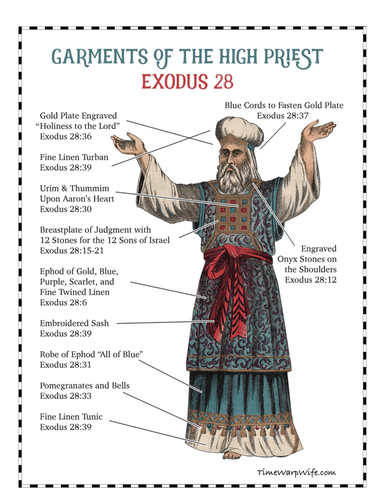
18. Instituting the Priesthood: God’s Holiness Demonstrated Exodus 28:1-29:37
Depending on your religious background, priests may be either venerated, despised or just tolerated. Regardless of our church affiliation and the various names we give our spiritual leaders, we recognize their role in corporate worship. The focal point of worship is to be God and not the priest or pastor. God's plan for Israel's priesthood pointed to his own holiness and to human sin. Priests and worshipers alike needed atonement for their sins. This study will help you examine your own motives in worship.
Depending on your religious background, priests may be either venerated, despised or just tolerated. Regardless of our church affiliation and the various names we give our spiritual leaders, we recognize their role in corporate worship. The focal point of worship is to be God and not the priest or pastor. God's plan for Israel's priesthood pointed to his own holiness and to human sin. Priests and worshipers alike needed atonement for their sins. This study will help you examine your own motives in worship.
- When you hear the word priest, what one-word responses come to mind?
- Read Exodus 28:1-30. How and why did God give special status to the sons of Aaron?
- What sets you apart as special to God?
- What would the precious stones mean to the Israelites in their relationship with God (Exodus 28:9-12, 21, 29)?
- Jesus is our "continuing memorial before the Lord" (Ex 28:29 and Hebrews 7:25). How does Jesus fulfill this role of the high priest?
- Read Exodus 28:31-43. What facts about God's nature are emphasized by these garments (Exodus 28:35-36, 38, 43)? What do they teach about our spiritual condition and its consequences?
- How can we develop an awareness of our own sin and God's holiness in our worship?
- Read Exodus 29:1-37. What offerings were made for the priests (Exodus 29:1-3)? What was the underlying purpose of the offerings (Exodus 29:33)?
- If you had been one of Aaron's sons, what would have been your major feelings and impressions about God and about your ministry?
- Why do you think God went to such elaborate measures for his priests' garments and for their ordination?
- In your life, what would compare to the priestly garments?
- Jesus is our great high priest. What benefits do we receive from him (Hebrews 2:14-18; Hebrews 5:1-3, 7-10; Hebrews 9:11-15; Hebrews 10:19-25)?
- How should the Christian life be reflective of these benefits?
17. Instructions for the Tabernacle: God's Blueprint for Worship Exodus 25-27
Church buildings today appear to be designed primarily for functional purposes. We don't build Gothic cathedrals anymore. We struggle to find God's presence in our sanctuaries. For some, architecture is unimportant. For others, it's a prime source of inspiration. Moses and the Israelites didn't have to debate the matter. God gave them his plan for their sanctuary. Beyond the plans, however, were important spiritual lessons. Fortunately for us, the New Testament gives us the fulfillment of these plans in Christ and his church.
Church buildings today appear to be designed primarily for functional purposes. We don't build Gothic cathedrals anymore. We struggle to find God's presence in our sanctuaries. For some, architecture is unimportant. For others, it's a prime source of inspiration. Moses and the Israelites didn't have to debate the matter. God gave them his plan for their sanctuary. Beyond the plans, however, were important spiritual lessons. Fortunately for us, the New Testament gives us the fulfillment of these plans in Christ and his church.
- The worship service is both a spiritual and physical event. In what ways has a particular church building helped or hindered your worship of God?
- Read Exodus 25:1-9. Why would an Israelite feel prompted to give building materials for the tabernacle (Exodus 25:2)?
- What kinds of offerings does God expect from us (Romans 12:1; 1 Cor. 16:1-2; Hebrews 13:15-16)?
- What was the purpose of the sanctuary (Exodus 25:8)?
- Since God does not dwell in a building now (Eph. 2:19-22), why should we have church sanctuaries?
- On the other hand, in what way's does the design of a church building reflect the theology of that church?
- Read Exodus 25:10-22. The wooden chest called the ark held God's law ("the Testimony"). God promised to meet his people there and teach them his commands (Exodus 25:16, 22). As Christians, how is our access to God and his commands superior to what is described here?
- Read Exodus 25:23-40. The bread of the Presence (Exodus 25:30) symbolized that the fruit of our labors come from and belong to God. Why would Israel need this daily reminder? In what ways can we acknowledge this today?
- Read Exodus 26:1-37. What does the value of the materials that went into the tabernacle suggest about the message God was trying to convey to his people?
- Israel's tabernacle "was only a copy of the true one . . . heaven itself" (Hebrews 9:24). How does this fact enhance your appreciation of what Jesus has done and is doing for you (Hebrews 9:1-5, 23-28)?
- Read Exodus 27:1-8. The altar was the place of sacrifice, which was to be central to Israel's worship. How has Christ fulfilled the purpose of these sacrifices (Hebrews 9:11-15)?
- Read Exodus 27:9-21. Pretend you are standing in the courtyard of the tabernacle. Visualize the scene around you, including the burning lamps. Pick a few simple adjectives to describe what you see.
- How does this tabernacle plan added to your ability to praise and worship God in relation to his character, majesty and saving deeds?
16. Ratifying the Covenant: God's Call to His People Confirmed Exodus 23:20-24:18
Peace treaties and home mortgages are ratified by signatures of the parties involved. Marriages are ratified by vows spoken before witnesses. The point is the same: promises are made and solemnly sealed. God called forth such an agreement at the birth of Israel. A written document was agreed to. Public vows were made. The blood of sacrificial animals sealed the covenant—a landmark in Israel's history. A marriage, as it were, was begun between God and his people. As this study reveals, our commitments to God carry awesome responsibilities.
Peace treaties and home mortgages are ratified by signatures of the parties involved. Marriages are ratified by vows spoken before witnesses. The point is the same: promises are made and solemnly sealed. God called forth such an agreement at the birth of Israel. A written document was agreed to. Public vows were made. The blood of sacrificial animals sealed the covenant—a landmark in Israel's history. A marriage, as it were, was begun between God and his people. As this study reveals, our commitments to God carry awesome responsibilities.
- Read Exodus 23:20-33. What perils and temptations lie ahead for the Israelites?
- What is this "angel" in Ex. 23:20-21?
- In light of these perils and temptations, what commands and promises does God give?
- On what basis would you think an Israelite could trust God for the unknown?
- What perils or temptations do we face in our day and age, and how does God see us through them?
- Read Exodus 24:1-8. After Israel's response (Exodus 24:3) and Moses' steps to ensure that a public record of the laws would be kept (Exodus 24:4), why was sacrifice appropriate (Exodus 24:5)?
- How would you summarize the basic points of this agreement (covenant) between God and his people?
- What is God's basic agreement with you (Hebrews 8:8-13)? How was it ratified (Matthew 26:28)?
- What kind of commitment have you made "to do everything the Lord has said"?
- Read Exodus 24:9-18. What is the purpose of this mountain-top meeting with God?
- God showed his glory to Israel (Exodus 24:15-18). In what ways does God display His glory today?
- What does it mean for us to meet with God today? In what ways is our "covenant" relationship with God similar and different with that established here in Exodus?
15. Laws for Israel:God's Concern for a Well-Ordered Society Exodus 20:22-23:19
"Do not cook a young goat in its mother's milk." That law seems to have about as much relevance as the 55- mph-speed limit. But long before Congress got into the act, God gave laws to his nation that addressed serious social ills that still plague us today. Not goat's milk stew or speed limits—but what about murder, robbery and rape? What about justice and bribery? Who cares for the helpless? In this study Moses conveys God's plan for a newly born nation, whose fundamental credo was "You are to be my holy people" (Exodus 22:31). Holiness is never outdated.
"Do not cook a young goat in its mother's milk." That law seems to have about as much relevance as the 55- mph-speed limit. But long before Congress got into the act, God gave laws to his nation that addressed serious social ills that still plague us today. Not goat's milk stew or speed limits—but what about murder, robbery and rape? What about justice and bribery? Who cares for the helpless? In this study Moses conveys God's plan for a newly born nation, whose fundamental credo was "You are to be my holy people" (Exodus 22:31). Holiness is never outdated.
- What kinds of laws do people generally like? Dislike? Why?
- Read Exodus 20:22-26. How would you summarize God's rules for idols and altars? What reasons does he give for these rules?
- Read Exodus 21:1-11. These laws were intended to improve the conditions of slaves. Why do you think slavery of any kind was permitted? How does our concern for poor and exploited people express itself today?
- Read Exodus 21:12-36. What crimes are subject to capital punishment, and why (Exodus 21:12-17)?
- What legal principle underlies punishment of those guilty of causing personal injuries (Exodus 21:23-25)?
- How was the welfare of society preserved and promoted by these laws?
- Read Exodus 22:1-15. Restitution had to be made in certain cases. How does being liable for restitution contribute to the protection of property?
- Read Exodus 22:16-31. In these miscellaneous laws, what do you sense is God's prime concern? Why?
- What aspects of God's character stand out in this section?
- How would you explain your social responsibilities based on the principles here?
- Read Exodus 23:1-9. How does God's concern for justice and mercy stand out here?
- Of these laws, which do you think are most appropriate to social needs in your community? Why?
- Read Exodus 23:10-19. Compared to what Israel's religious festivals might cost the average Israelite, what does your worship of God cost you?
14. The Ten Commandments: Keys to God's Character and Human Welfare Exodus 20:1-21
The most convincing orders are those issues in simple words: Stop! Go! No misunderstanding them. In military training, soldiers learn split-second obedience to concise commands. Their survival depends on it! In Exodus 20, God speaks ten words—the most majestic moral commands ever spoken, the clearest rules for humanity's welfare. They are the foundation of personal and national life. They also reveal God's character. In this passage Israel learns that God is much more than the God of food, water, military victories and natural calamities.
The most convincing orders are those issues in simple words: Stop! Go! No misunderstanding them. In military training, soldiers learn split-second obedience to concise commands. Their survival depends on it! In Exodus 20, God speaks ten words—the most majestic moral commands ever spoken, the clearest rules for humanity's welfare. They are the foundation of personal and national life. They also reveal God's character. In this passage Israel learns that God is much more than the God of food, water, military victories and natural calamities.
- When you were a child, how did your parents teach you to obey simple commands like, "Don't cross the street"?
- Read Exodus 20:1-11. What right did God have to issue these commands (Exodus 20:2)?
- Put the first commandment into your own words (Exodus 20:3).
- Why are God's supremacy and the necessity of absolute loyalty the foundation for the Ten Commandments?
- What reasons does God give for prohibiting idolatry (Exodus 20:4)?
- What "other gods" or idols compete for your allegiance? 6. Give examples of "misusing" God's name (Exodus 20:7).
- In today's world, how can we observe God's sabbath principle (Exodus 20:8-11)?
- Read Exodus 20:12-21. How would you interpret the promise given to those who honor their parents (Exodus 20:12)?
- What does "honor" include?
- Murder and adultery (Exodus 20:13-14) are not just external acts; they are matters of the heart (see Matthew 5:21-30). What, then, does it mean to obey these commands?
- Historically, the church has understood drunkenness to fall under which commandment? (See Romans 13:13 and 1 Peter 4:3.)
- Give examples of stealing, other than burglary and armed robbery (Exodus 20:15).
- In what way is stealing a violation of the sanctity of human relations?
- What might be some of the consequences of "false testimony" (Exodus 20:16)?
- In what way is coveting (Exodus 20:17) not only a wrong against our neighbor but also against God? (See also Col. 3:5).
- Reflect on all the commands and, as needed, follow the promise of 1 John 1:9.
|
Text |
Jewish |
Orthodox/ Reformed |
Roman Catholic |
Lutheran |
|
I am the Lord your God, who brought you out of the land of Egypt, out of the house of slavery. |
1 |
Introduction |
||
|
You shall have no other gods before me. |
2 |
1 |
1 |
1 |
|
You shall not make for yourself a carved image ... not bow down to them or serve them, |
2 |
|||
|
for I the Lord your God am a jealous God, ... |
"Close of the Commandments" |
|||
|
You shall not take the name of the Lord your God in vain, |
3 |
3 |
2 |
2 |
|
Remember the Sabbath day, to keep it holy. ... |
4 |
4 |
3 |
3 |
|
Honor your father and your mother, ... |
5 |
5 |
4 |
4 |
| You shall not murder. | 6 | 6 | 5 | 5 |
|
You shall not commit adultery. |
7 |
7 |
6 |
6 |
| You shall not steal. | 8 | 8 | 7 | 7 |
|
You shall not bear false witness against your neighbor. |
9 |
9 |
8 |
8 |
|
You shall not covet your neighbor's house; |
10 |
10 |
10 |
9 |
|
you shall not covet your neighbor's wife, |
9 |
10 |
||
|
you shall not covet your neighbor's wife, |
10 |
|||
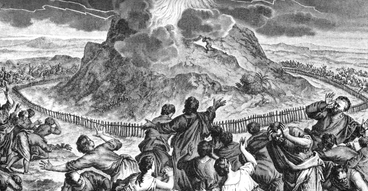
13. The Encampment at Mount Sinai: Preparation for God's Laws Exodus 19
Do you tune in or tune out when the pastor stands to read the Scripture? You've heard it before? Probably. How can we who have heard the Bible so often recapture the expectancy of hearing for the first time? A very practical problem indeed. When God spoke to his people the first time, a thunderstorm erupted. We can't expect that every Sunday. How eager are we to hear God speak? To listen and obey? In this study we find not only thunder and lightning but a prepared, excited, even fearful people. The New Testament reminds us that God is still a consuming fire.
Do you tune in or tune out when the pastor stands to read the Scripture? You've heard it before? Probably. How can we who have heard the Bible so often recapture the expectancy of hearing for the first time? A very practical problem indeed. When God spoke to his people the first time, a thunderstorm erupted. We can't expect that every Sunday. How eager are we to hear God speak? To listen and obey? In this study we find not only thunder and lightning but a prepared, excited, even fearful people. The New Testament reminds us that God is still a consuming fire.
- In what practical ways can we prepare for Sunday-morning worship?
- Read Exodus 19:1-9. After three months on the road, what prospect did God hold out for his people (Exodus 19:1-6)?
- Why would the Israelites be inclined to believe God's promise and obey his commands (Exodus 19:7-8)?
- What evidence do you have to trust and obey the Lord?
- Read Exodus 19:10-15. What preparations did the people have to make for God's appearance, and why?
- What message was God conveying about himself and about his words (Exodus 19:6, 23)?
- Moses "consecrated" the people so they could meet God (Exodus 19:14). What is required of us to meet him? Why?
- Read Exodus 19:16-25. How and why did the people react to the signs of God's presence on the mountain (Exodus 19:16-19)?
- Why would the Israelites be tempted to "force their way through to see the Lord" (Exodus 19:21)?
- Moses acts as mediator between God and his people. In what sense is Jesus our mediator now (1 Tim. 2:5-6)?
- What impressions do you have of Moses, of God and of the Israelites in this scene?
- Why would the events of the three days predispose people to hear and obey God's words?
- How can we hold God's Word in holy awe?
- Read Hebrews 12:18-28. In light of Christians' far greater spiritual privileges, what warnings and encouragements does the writer give?
- How can you be sure not to "refuse him who speaks" (Hebrews 12:25)?
12. Jethro's Counsel: Enlist Helpers to Carry the Load Exodus 18
In-laws are the favorite butt of jokes. Rarely are they portrayed in a positive light. But God places us in extended families to give us added wisdom and to shave off our rough edges. Jethro, Moses' father-in-law, brought Moses' wife and sons back to him. He also brought praise and worship to God. But he didn't stop there. Jethro gave important counsel to Moses. Though he could be accused of meddling, he was God's deliverer for Moses and Israel, just as much as Joshua and his soldiers were (Exodus 17:8-16). Jethro forces us to examine our motives in doing Christian service.
In-laws are the favorite butt of jokes. Rarely are they portrayed in a positive light. But God places us in extended families to give us added wisdom and to shave off our rough edges. Jethro, Moses' father-in-law, brought Moses' wife and sons back to him. He also brought praise and worship to God. But he didn't stop there. Jethro gave important counsel to Moses. Though he could be accused of meddling, he was God's deliverer for Moses and Israel, just as much as Joshua and his soldiers were (Exodus 17:8-16). Jethro forces us to examine our motives in doing Christian service.
- How do you anticipate family reunions, and why?
- Read Exodus 18:1-12. What facts do we learn about Jethro and Moses' family (Exodus 18:1-4)?
- What do the names of Moses' sons recall for him and his family (Exodus 18:3-4)?
- Of what value is it to have a friend to whom you can tell everything? Why would Moses have needed such a friend now?
- Why was worship the appropriate response to Moses' report (Exodus 18:9-12)?
- In what ways can you draw your family closer to God?
- Read Exodus 18:13-27. What did Jethro observe about Moses' daily routine and the toll this was taking on Moses and the people (Exodus 18:13-18)?
- How did Moses respond to Jethro's counsel (Exodus 18:19-26)? Why might this have been hard for him to do (Exodus 18:15-16)?
- What impressions do you have of Moses' ego at this time in his life?
- Why could it have been easy to overlook God's hand at work in this family reunion, compared to his provision of water, food and victories over the Egyptians and the Amalekites?
- How should we be open to seeing God's counsel through your parents, friends, wife or husband and in-laws?
- Why is it ego-building to be sought after for your counsel and to have authority and responsibility over others (Exodus 18:15-16)?
- For some, what ego needs might be being met by their overworking themselves for God?
11. Adversities of the Desert: Thirst, Hunger and Attack—God Overcomes Them All. Exodus 15:22-17:16
CASSIODORUS: These incidents are quite well known from our reading of Exodus, for quails rained down like the heaviest shower, and the Jews received manna to get their fill. But to demonstrate that this was a prefiguration, he spoke not of manna but of the bread of heaven, so that the Lord Savior’s coming could be visualized in this blessing, for he is “the living bread which came down from heaven.” The meaning of manna, as was stated at [Psalm 78:24], is “What is this?” He disposed of the problem surrounding the name, and with the statement “He filled them with the bread of heaven,” he explained the answer to the question about manna, for the Lord of heaven is indicated by the phrase, and the nature of manna is clearly acknowledged.
CASSIODORUS: These incidents are quite well known from our reading of Exodus, for quails rained down like the heaviest shower, and the Jews received manna to get their fill. But to demonstrate that this was a prefiguration, he spoke not of manna but of the bread of heaven, so that the Lord Savior’s coming could be visualized in this blessing, for he is “the living bread which came down from heaven.” The meaning of manna, as was stated at [Psalm 78:24], is “What is this?” He disposed of the problem surrounding the name, and with the statement “He filled them with the bread of heaven,” he explained the answer to the question about manna, for the Lord of heaven is indicated by the phrase, and the nature of manna is clearly acknowledged.
- As we read through these passages think of a time of great disappointment or unmet expectations in your own life. How did that time affect you?
- Read Exodus 15:22-27. Put yourself in the shoes of an Israelite three days into the desert with no water. How would you feel and why?
- God provided water for his people (Exodus 15:25, 27). Why do you think he led them to bitter water first?
- Read Exodus 16:1-34. Faced with starvation, the Israelites attacked Moses and Aaron (Exodus 16:1-3). In what sense were they groaning against God (Exodus 16:7-8)?
- What does this reveal about the true nature of complaining about our circumstances?
- Why and how did God respond to Israel's complaints (Exodus 16:9-15)?
- Read John 6:29-40. What is Jesus teaching His hearers in this section>
- In what ways did Israel violate God's commands, and why (Exodus 16:16-30)?
- Reflect on God's meeting your needs in emergencies. How might you be able to keep such events as a testimony to future generations?
- Read Exodus 17:1-16. Lack of water creates another crisis. How did Moses sum up the people's failure (Exodus 17:7)? How do you account for their short memory?
- Israel's next hurdle is an enemy attack (Exodus 17:8-16). What was God's plan for victory over the Amalekites? What part did Moses, Aaron, Hur and Joshua and the men of Israel play in the victory?
- As you look around at the unbelief and opposition to God, what should the church be doing in such times?
- Reflect on how Moses summarized the day. What did he do, what did he emphasize, and why (Exodus 17:15-16)?
10. The Songs of Moses and Miriam: Praise for the Past and Hope for the Future. Exodus 15:1-21
Music plays a vital role in Christian worship. Sometimes, however, music causes contention: the old favorites versus the new gospel tunes; organs versus guitars. Overlooked is the fact that God gave us music and singing to praise and glorify his name. Nowhere is this seen more clearly than in the thrilling song service that broke out on the eastern shore of the Red Sea. Moses the statesman, Moses the voice of God became Israel's song leader. Praise and honor to God marked the final triumph over Egypt. How much more Christians need to sing to God for his victory in Christ.
Augustine: “For he has been gloriously extolled” who has already granted us in the bath of regeneration what we have been singing about: “horse and rider he has cast into the sea.” All our past sins, you see, which have been pressing on us, as it were, from behind, he has drowned and obliterated in baptism. These dark things of ours were being ridden by unclean spirits as their mounts, and like horsemen they were riding them wherever they liked. That’s why the apostle calls them “rulers of this darkness.” We have been rid of all this through baptism, as through the Red Sea, ... sanctified by the blood of the crucified Lord. Let us not turn back to Egypt in our hearts, but with him as our protector and guide let us wend our way through the other trials and temptations of the desert toward the kingdom."
Music plays a vital role in Christian worship. Sometimes, however, music causes contention: the old favorites versus the new gospel tunes; organs versus guitars. Overlooked is the fact that God gave us music and singing to praise and glorify his name. Nowhere is this seen more clearly than in the thrilling song service that broke out on the eastern shore of the Red Sea. Moses the statesman, Moses the voice of God became Israel's song leader. Praise and honor to God marked the final triumph over Egypt. How much more Christians need to sing to God for his victory in Christ.
Augustine: “For he has been gloriously extolled” who has already granted us in the bath of regeneration what we have been singing about: “horse and rider he has cast into the sea.” All our past sins, you see, which have been pressing on us, as it were, from behind, he has drowned and obliterated in baptism. These dark things of ours were being ridden by unclean spirits as their mounts, and like horsemen they were riding them wherever they liked. That’s why the apostle calls them “rulers of this darkness.” We have been rid of all this through baptism, as through the Red Sea, ... sanctified by the blood of the crucified Lord. Let us not turn back to Egypt in our hearts, but with him as our protector and guide let us wend our way through the other trials and temptations of the desert toward the kingdom."
- What part does music play in our worship of God?
- Read Exodus 15:1-21. What inspired this song of victory (Exodus 15:1)?
- In what terms do Moses and the people express their personal relationship with God and their duty to God (Exodus 15:2)?
- What is the value of reciting God's victories in public singing?
- What conclusions about God do the people draw from the Red Sea victory (Exodus 15:3-11)?
- In what ways do these facts reveal God's purposes for delivering Israel from Egypt?
- Can you think of hymns that describe God's victory over our enemies?
- After rehearsing the past, the people look to the future. What enemies lie ahead (Exodus 15:14-15)? 10. What will be the effect of the exodus on these nations (Exodus 15:14-16)?
- On what basis do the people exude confidence for their future (Exodus 15:13-18)?
- How does the knowledge of God's character and past faithfulness encourage you in anticipation of the future?
- Why would it be important for the people to sing about overcoming the enemies yet to be faced?
- What role did Miriam and the other women play in the victory celebration, and why (Exodus 15:20-21)?
- In some ways our praise to God should be planned, and in some ways it should be spontaneous. What is the value of both kinds of worship?
9. Crossing the Red Sea: From Crisis to Triumph. Exodus 13:17-14:31
Impossible jams converge on us at the most unlikely moments. One minute we're cruising down the freeway at 60 m.p.h., and the next instant we jam on the brakes. For the next two hours we're stuck. Wouldn't it be wonderful if we could wave a magic wand and unclog the whole mess? Life is like that. God leads us in and out of jams to test our mettle, and to strengthen our faith. In this study, Israel's moment of glorious freedom was shattered by an advancing army. Seemingly, disaster loomed. But God had some things to prove to Egypt, Israel and Moses. Painful lessons indeed.
Impossible jams converge on us at the most unlikely moments. One minute we're cruising down the freeway at 60 m.p.h., and the next instant we jam on the brakes. For the next two hours we're stuck. Wouldn't it be wonderful if we could wave a magic wand and unclog the whole mess? Life is like that. God leads us in and out of jams to test our mettle, and to strengthen our faith. In this study, Israel's moment of glorious freedom was shattered by an advancing army. Seemingly, disaster loomed. But God had some things to prove to Egypt, Israel and Moses. Painful lessons indeed.
- What recent crisis has brought you to your wit's end, and why?
- Read Exodus 13:17-22. Why did God not take Israel the shortest route to Palestine? Of what possible benefit are God's "detours" in our lives?
- God provided clear guidance for the journey through the pillar of cloud and the pillar of fire (Exodus 13:21-22). Read Is 43:1-3. How does God guide Christians today (see also Psalm 119:105)?
- Faith operates both long-range (Joseph) and short-range (following the pillar). What areas in the Christian life today require long-range or short-range trust in God?
- Read Exodus 14:1-14. What plan does God reveal to Moses (Exodus 14:1-4)? What is God's ultimate purpose (Exodus 14:4; see Exodus 7:5)
- How did the Israelites react to the onslaught of the Egyptians, and why (Exodus 14:10-12)?
- What did this test reveal about their hearts?
- In what circumstances have you caved in to fear and second-guessed God?
- Compare each part of Moses' commands (Exodus 14:13-14) with the Israelites' conditions and attitudes (Exodus 14:10-12)
- What did God's plan for escape require of Moses and the people (Exodus 14:15-18)?
- Read Exodus 14:15-31. What was the outcome of this hair-raising experience for the Egyptians, Moses and Israel (Exodus 14:17-18, 30-31)?
- In Exodus 14:19, Moses uses the phrase "the angel of God" for the first time in Exodus. Who is this? (see also Gen. 31:11-13)
- Think about times when you have felt like Israel, trapped between the Egyptians and the Red Sea. What did you do and why?
- How can this passage help you in threatening experiences you face in following God, now or in the future?
- God allowed the Israelites to cross safely on dry ground. Read 1 Cor 10:1-4. What does Paul mean here?
8. The Exodus: Freedom and Its Cost Exodus. 12:29-13:16
Freedom has a high price. For some political refugees today it means a perilous sea journey along the coast of Southeast Asia. For others, a dangerous trek over Central American mountains. In Europe it often costs job and even family. In this study we find what Israel's freedom cost—both the losers and the winners. God secured the liberation of his people, but this in turn cost them the rights to their most precious possessions.
Freedom has a high price. For some political refugees today it means a perilous sea journey along the coast of Southeast Asia. For others, a dangerous trek over Central American mountains. In Europe it often costs job and even family. In this study we find what Israel's freedom cost—both the losers and the winners. God secured the liberation of his people, but this in turn cost them the rights to their most precious possessions.
- In what ways are we accountable to God for the civil freedom he gives us?
- Read Exodus 12:29-51. What contrasts do you observe between Pharaoh's attitude and behavior now and his earlier encounters with Moses and Aaron (Exodus 12:29-32)?
- How would you describe the emotional intensity of Egyptians (Exodus 12:29-36)? Why were the Israelites "driven out" of Egypt (Exodus 12:39)?
- Augustine: The Egyptians not only had idols and crushing burdens which the people of Israel detested and from which they fled. They also had vessels and ornaments of gold and silver, and clothing, which the Israelites leaving Egypt secretly claimed for themselves as if for a better use. Not on their own authority did they make this appropriation, but by the command of God. Meanwhile, the Egyptians themselves, without realizing it, were supplying the things which they were not using properly. In the same way, all the teachings of the pagans have counterfeit and superstitious notions and oppressive burdens of useless labor. Any one of us, leaving the association of pagans with Christ as our leader, ought to abominate and shun them.
- God fulfilled his warnings and promises (see Exodus 3:20-22; Exodus 4:23). What significance would this have for Israel's understanding of God's nature and character?
- In what ways have you found God's warnings and promises to be true?
- How would the Passover restrictions (Exodus 12:43-49) encourage foreigners and others to worship God and, at the same time, preserve Israel from religious compromise and contamination? What does this say about Christian practice today?
- What message is God sending to the Israelites by these rules at the outset of their independence?
- How can we guard the essential elements of our faith in Jesus Christ and, at the same time, extend his offer of salvation to all people?
- Read Exodus 13:1-16. God calls Israel to dedicate to him that which he has just delivered-the whole nation, not just the firstborn of man and beast. What plan does God have for perpetuating this ordinance (Exodus 13:8-10, 14-15)?
- To keep the ritual from becoming sterile, what was required of the worshiper?
- How do you maintain fresh impressions of your own deliverance from the guilt and enslavement of sin?
- What was the basis of God's authority to claim the first-born as his own?
- On what basis does he claim Christians as living sacrifices (see Romans 12:1-2)?
7. The Passover: Night of Death and Deliverance Exodus 11:1-12:28
Death is a powerful, painful lesson. It gets our attention as nothing else does. It's also unavoidable. It was God's final recourse in showing both his supremacy to Pharaoh and his power to liberate his people. When Pharaoh refused God's ultimatum, thousands perished; when Israel heeded his way of deliverance, thousands lived. The final act of judgment is thus a stark portrayal of how every person's fate hinges on either believing or disbelieving the one true and living God in heaven.
Death is a powerful, painful lesson. It gets our attention as nothing else does. It's also unavoidable. It was God's final recourse in showing both his supremacy to Pharaoh and his power to liberate his people. When Pharaoh refused God's ultimatum, thousands perished; when Israel heeded his way of deliverance, thousands lived. The final act of judgment is thus a stark portrayal of how every person's fate hinges on either believing or disbelieving the one true and living God in heaven.
- Why do people avoid facing the issue of possible alternatives alter death?
- Read Exodus 11:1-10. What is God's promise and instruction to Moses (Exodus 11:1-2)?
- How do you account for the Egyptians' change in attitude toward God's people and Moses (Exodus 11:3)?
- What is to be the nature, scope and result of God's final judgment on Egypt (Exodus 11:4-7)?
- In what sense could Moses' anger either be justifiable or not (Exodus 11:8)?
- From the human standpoint, why do you think Pharaoh was so obstinate that even this impending judgment failed to move him (Exodus 11:9-10)?
- Like Moses, how can we continue to trust God in the face of seemingly irresistible unbelief among friends, family or relatives?
- Read Exodus 12:1-28. What steps are the Israelites to take to be spared (Exodus 12:1-13)?
- Why were they to eat the meal "in haste" (Exodus 12:11)?
- Describe the memorial Feast of Unleavened Bread (Exodus 12:14-20). How do Christians "celebrate" this feast according to Paul in 1 Cor. 5:6-8?
- Imagine yourself as a family head in Israel. How would you explain the meaning of the Lord's Passover to your children (Exodus 12:26-27)?
- To make deliverance possible, the people had to believe and obey Moses. Why or why wouldn't you have done so? (See Hebrews 11:28.)
- The apostle Paul says Christ is our Passover lamb (1 Cor. 5:7). What is required of a person for Jesus to be his or her Passover?
- The shield against the "destroyer" (Exodus 12:23) in Egypt was the blood of a perfect lamb. Christ's blood secures the Christian's deliverance from eternal death (John 1:29; Hebrews 9:14; Rev. 5:13). As you reflect on the powerful imagery of the Lord's Passover, and also on Christ's sacrifice, what response and deeds would be appropriate?
6. Plagues Six Through Nine
In Exodus 4:22 God instructs Moses to tell Pharaoh, "Thus says the LORD, Israel is my firstborn son." The firstborn received the blessing of the father, the name of the father, the inheritance, either the entire thing or a double-portion. The firstborn would become the head of the family to take care of the rest of the family that the entire family might be blessed through him. The firstborn son would also be responsible for the worship of the family and teaching the household the ways of the LORD.
In Exodus 4:22 God instructs Moses to tell Pharaoh, "Thus says the LORD, Israel is my firstborn son." The firstborn received the blessing of the father, the name of the father, the inheritance, either the entire thing or a double-portion. The firstborn would become the head of the family to take care of the rest of the family that the entire family might be blessed through him. The firstborn son would also be responsible for the worship of the family and teaching the household the ways of the LORD.
- In the context of the plagues how is Israel fulfilling the responsibility of the firstborn son?
- Read Exodus 9:8-12. The Egyptians worshipped several healing deities, on occasion even sacrificing human beings to them. The victims were burned on an altar, and their ashes were cast into the air, where the wind would blow the ashes over the people. This was viewed as a blessing for them. The ashes that Moses threw fell on all the priests, people and the animals that were left. But rather than a blessing, this turned into painful boils—large sores on the people. This plague would have been an affront to a number of Egyptian gods of healing. One, earlier mentioned, was Imhotep, god of medicine. Another was Thoth, the ibis-headed god of intelligence and medical learning. In what way is this plague judgment on these Egyptian gods?
- Read Exodus 9:13-26. How is the LORD judging Nut the sky goddess, Shu the god of the air and barer of heaven, Horus the sky god, and Seth the god of storms and protector of crops?
- With this plague the Lord is not only making a distinction between the Egyptians and the Israelites but between which two groups of people (Ex 9:20-21)? How do people interpret natural disasters today?
- Read Exodus 9:27-35. What pattern of behavior has by this time become well established in Pharaoh (Exodus 8:15, 30-32; Exodus 9:34-35)?
- Read Exodus 10:1-20. In what way is this plague a direct result of Pharaoh's reaction to the previous plague?
- What do you suppose is the point of Pharaoh's stipulation in Exodus 10:10-11?
- Read Exodus 10:21-29. Now the most important Egyptian god, the sun god (Ra or Amun) was shown to be powerless against the true God. What would the average Egyptian have thought seeing this sign?
- In what sense were the Egyptians already in darkness prior to this plague? Ssee also Isaiah 60:1-3.
- Pharaoh tried to make deals with God (Exodus 10:11, 24). What must his mindset have been? What sorts of deals do we try to make with God in our day?
- When you are humbled by God, how can you regain your self-confidence and your trust in God?
- What is Moses specifically asking of Pharaoh in Exodus 10:25-26? Why is this important?
5. First Five Plagues: God's Power against Pharaoh, Exodus 7:8-9:7
On the hardening of pharaoh's heart Seventeen times in Exodus 4 through 14, Moses speaks of Pharaoh's heart being hardened. Sometimes the text says Pharaoh hardened his own heart (e.g. Ex. 8:15, 8:32), but other times we read that God hardened his heart or that his heart "was hardened" (e.g. Ex. 9:7, 9:12). Over the centuries much has been written about this; theories abound. In his great work, "On the Bondage of the Will", Martin Luther takes up this question knocking down several theories, some written by very intelligent leaders of the church. Here we briefly summarize Luther's understanding: The text "I will harden the heart of Pharaoh" does not mean:
On the hardening of pharaoh's heart Seventeen times in Exodus 4 through 14, Moses speaks of Pharaoh's heart being hardened. Sometimes the text says Pharaoh hardened his own heart (e.g. Ex. 8:15, 8:32), but other times we read that God hardened his heart or that his heart "was hardened" (e.g. Ex. 9:7, 9:12). Over the centuries much has been written about this; theories abound. In his great work, "On the Bondage of the Will", Martin Luther takes up this question knocking down several theories, some written by very intelligent leaders of the church. Here we briefly summarize Luther's understanding: The text "I will harden the heart of Pharaoh" does not mean:
- The Lord will give occasion to Pharaoh to harden his heart by not correcting the sinner at once.
- My long-suffering, by which I bear with the sinner, and which leads others to repentance, shall make Pharaoh more obstinate in wickedness. See also Romans 9:18, and Isaiah 63:17. The problem is that the logic of this leads to punishment being seeing as mercy, and mercy being seen as punishment.
- There comes a point where we cannot probe any further into the mind of God.
- Free-will cannot will good according to our sinful nature. By nature we cannot decide to do what is good. Natural man, like Satan, is wholly bent in on himself. He does not seek the things of God, but is bound up with his own self-interest.
- God does not create "fresh evil" within us, but our corrupt wills bristle and rebel against God's activity. God is being God, and man doesn't like it.
- Read Exodus 7:8-25. What was the sign of God's supremacy (Exodus 7:8-13)? What would this have done for Moses and Aaron?
- The Nile was the "life-blood" of Egypt. The river itself was thought of as divine. The god Hopi was believed to bring about the annual flooding of the Nile. The Egyptians viewed the Nile River as bloodstream of the god Osiris—and now it was literally blood! These gods are being judged. The Nile turning into blood is also a judgment on what previous decree of Pharaoh?
- Read Exodus 8:1-15. Frogs were sacred in Egypt because they lived in two worlds, water and land. They were considered so sacred that even accidentally stepping on one could be punished by death. Frogs were associated with fertility and were thought to be a manifestation of the goddess Heqet, goddess of birth and wife of the creator of the world. In what ways is God "judging" the gods of Egypt through this plague?
- Read Exodus 8:16-19. One theory on the gnats (or possibly lice): The Greek historian Herodotus, who traveled to ancient Egypt, tells us that the Egyptian priests had to perform many cleanliness rituals to serve in their role as priests. Some of these were specifically to avoid being infected with lice, which would prevent them from carrying out their religious duties in service to their gods. But now the presence of these lice they couldn’t even go into the temples to lead the worship of the Egyptian gods because they were now considered unsuitable to perform their rituals! How would this plague have been a judgment against the religious system of Egypt?
- Read Exodus 8:20-32. "Flies" doesn't appear in the text, simply "swarm," as in swarms of some kind of insect, perhaps many different kinds? Possibly the sacred scarab beetle? If all different kinds of insects then it is an intensification of the third plague. If "flies," it brings to mind a name for Satan, Beelzebub the "king of flies." What is different about this plague from the first three?
- How did Pharaoh react to these "mighty acts of judgment," as God called them (Exodus 7:4; Exodus 8:8, 25-32)?
- What was the basic issue between God and Pharaoh (Exodus 7:5, 17; Exodus 8:10, 22)?
- What new disclosure does God make to Pharaoh about his power (Exodus 8:22-23)?
- In what matters is God in conflict with earthly powers today?
- Read Exodus 9:1-7. How should we understand "*all* the livestock of the Egyptians died"?
- Of course, livestock was valuable to the Egyptians for food, transportation, military capability, farming capacity, and economic goods. Certain animals were sacred, and some Egyptian gods were depicted as livestock. They would have been used for sacrifice. (Some suggest that Egyptians were vegetarians or at least near vegetarians.) What might the everyday Egyptian have thought when they experienced this plague?
4. The Difficulties of Moses and Aaron: Rebuff and Resolution Exodus 5:1-7:7
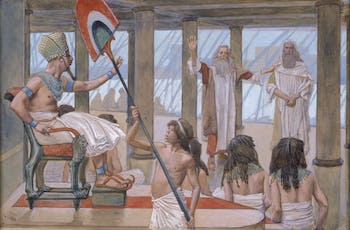
"Who is the LORD that I should obey him?" was Pharaoh's harsh reply [to Moses]. As far as he was concerned this LORD was some kind of foreign God. Pharaoh considered himself to be the only true intermediary between the high-gods and the people of the world. To him the great super powers were those of nature, like the sun and the moon, and he was a great high priest who could approach these high-gods in the beautiful temples along the Nile built in their honor. Thus his reply is more an expression of contempt than a question. - Ernst Wendland
On Egyptian religion (from Dr. John Kleinig). One way of understanding God's creative acts is forming order out of chaos. In the Egyptian religion, the ordered part of the universe is the over-world. The realm of chaos is in the underworld. The over-world is the area of light and life and the underworld is the area of darkness and death. The most important god is the sun god (Ra or Amon-Ra). He is important because without light there is no life and there is chaos. The sun god and the gods of the over-world brought order to the world. Then you have the gods of the world itself. These gods tended to be female, because they are associated with life and growth. The goddesses and gods of the earth were primarily fertility gods. The under-world gods had to do with death and destruction. Seth is the god of death and his symbol was the crocodile and hippo. The water of the Nile comes from the under-world. Therefore water was associated with chaos. This includes the seas. This idea was carried forward for many centuries by many cultures. It was still prevalent at the time of Jesus. Egyptian religion was built around the role of pharaoh as the representative of the sun god. Pharaoh was considered the son of the sun god. His main task was to bring order out of chaos and to maintain order via religious means.
Egyptian theology went like this. Every night the sun god went from the sky into the under-world. Why? He went to battle Seth and put him back into his domain. Every morning the sun god would rise victorious, declaring his victory over the powers of darkness. He then rose to the top of the sky and delivered the bene!ts that he won. Pharaohs played a role in this. Every evening pharaoh performed the rituals to protect the sun god in his journey into the under-world. And every morning before the sun rose, he performed rituals that helped the sun god rise up.
Egyptian theology went like this. Every night the sun god went from the sky into the under-world. Why? He went to battle Seth and put him back into his domain. Every morning the sun god would rise victorious, declaring his victory over the powers of darkness. He then rose to the top of the sky and delivered the bene!ts that he won. Pharaohs played a role in this. Every evening pharaoh performed the rituals to protect the sun god in his journey into the under-world. And every morning before the sun rose, he performed rituals that helped the sun god rise up.
- What various qualities of leadership are required to overcome adversity?
- Read Exodus 5:1-23. What were the major outcomes of the first encounter between Moses and Aaron and Pharaoh? How did Pharaoh interpret their demand (Exodus 5:8, 17)?
- From his actions, what kind of a person do you think Pharaoh was?
- From a human perspective, why do you think Pharaoh rejected the word of God given through his messengers?
- What things in our lives obscure God's clear word to us?
- Describe Moses' feelings and the logic of his cry to God (Exodus 5:22-23)?
- When God's will seems to be thwarted in this world, how should we respond?
- Read Exodus 6:1-27. The statement "I am the LORD" is repeated four times in Exodus 6:1-8. What does God emphasize about himself in response to Moses complaint (Exodus 6:1-5)?
- What does the Lord's message to Israel emphasize about his plans for them (Exodus 6:6-8)?
- 1How does Israel's response to Moses (Exodus 6:9) contrast with their initial response (Exodus 4:31)?
- Give an example from your life when discouragement blurred the clarity of God's power and promises.
- Read Exodus 6:28-7:7. Moses is concerned that Pharaoh won't listen to him (Exodus 6:30). Yet how will Pharaoh's stubbornness help to fulfill God's plans for Egypt (Exodus 7:3-5)?
- In spite of defeat and discouragement (Exodus 5:2; Exodus 6:9, 12, 30) Moses "did just as the LORD commanded" (Exodus 7:6). What do you think brought him to this decisive obedience?
- Basil the Great: Moses was appointed god of the Egyptians when he who was giving the revelation spoke to him in this manner: “I have appointed you the god of Pharaoh.” Therefore the title conveys an indication of some power, either protective or active. But the divine nature in all the names which may be contrived remains, just as it is, inexplicable, as is our teaching. What does God mean when He says, "I have made you like God to Pharaoh"?
3. The Call of Moses: Stubborn Reluctance Overcome
The milestones of history are marked by people who have met impossible demands. Battlefield monuments utter mute testimony to these events. Modern Turkey owes its existence to Kemal Ataturk, who rallied his troops with the impossible demand that they drive back the enemy from Gallipoli. Your most impossible demand may seem small in comparison-but not at the time the challenge presented itself. Perhaps it was writing an academic paper without adequate time or expertise. Or maybe it was the time when your church group undertook an evangelism program. This study shows how God put an impossible demand on Moses and propelled him into national leadership.
The milestones of history are marked by people who have met impossible demands. Battlefield monuments utter mute testimony to these events. Modern Turkey owes its existence to Kemal Ataturk, who rallied his troops with the impossible demand that they drive back the enemy from Gallipoli. Your most impossible demand may seem small in comparison-but not at the time the challenge presented itself. Perhaps it was writing an academic paper without adequate time or expertise. Or maybe it was the time when your church group undertook an evangelism program. This study shows how God put an impossible demand on Moses and propelled him into national leadership.
- Read Exodus 3:1-6, and Acts 7:30-35. In your own words describe the scene with the burning bush.
- What should be the human response to being in the presence of the Lord?
- Read Exodus 3:7-10. What motivates God to act on behalf of his people? What plan does he have in mind?
- Why do you think God chose an aged adopted Egyptian turned desert sheepherder to lead such an important mission?
- Read Exodus 3:11-13. Compare the calling of Moses and His response to that of some others:
a. Gideon, Judges 6:11-17
b. Samuel, 1st Samuel 3:1-10
c. Jeremiah, Jeremiah 1:4-10
d. Isaiah, Isaiah 6:1-10 - What is the source of Moses' sense of inadequacy for this assignment?
- Read Exodus 3:12-22. What reassurance does God give Moses?
- Much has been written about Exodus 3:14-15. What does it say about God that He reveals His name in this way?
- Read Exodus 4. What other doubts and fears does Moses have (Exodus 4:1,10)?
- How does God deal with these inadequacies (Exodus 4:2-9,11-12)?
- Why do you think Moses' final objection angers the lord (Exodus 4:13-17)?
- What reasons can you give for Moses' stubbornness in the face of God's call?
- When you are sure God is speaking to you, and a specific "Yes, Lord" is expected of you, what things influence your answer?
- How do the events in Exodus 4:27-31 confirm the Lord's promises to Moses?
Lesson 2 - The Birth and Escape of Moses: A Mother's Faith, a Son's Brashness
Few of us can brag about how bravely we have responded in crisis. Faith, for us, is often a comfortable intellectual exercise, not something that demands bold action. That definition becomes even more attractive when we're not sure how to distinguish between faith and foolishness. This study contrasts a privileged kid's brashness with a woman's courageous faith in action.
Few of us can brag about how bravely we have responded in crisis. Faith, for us, is often a comfortable intellectual exercise, not something that demands bold action. That definition becomes even more attractive when we're not sure how to distinguish between faith and foolishness. This study contrasts a privileged kid's brashness with a woman's courageous faith in action.
- What are some examples in our day and age that demand courageous faith?
- Read Exodus 2:1-10. How did God plan for the infant Moses to survive Pharaoh's murderous edict?
- What did Moses' survival cost his mother? His sister?
- Who is finally responsible for saving Moses, his Mother, sister, Pharaoh's daughter, God?
- Why do you think Pharaoh's daughter defied her father's order?
- Read Luke 14:25-33. What does Jesus mean to "count the cost"? What has been the most costly thing you have had to do for God?
- Consider the seeming hate for children that appears in the world, (Pharaoh, Herod, see also Leviticus 20:2-5). What is the source of this hate? (Also consider Genesis 3:15.)
- Read Exodus 2:11-15. Why did Moses flee to Midian? (He was 40 years old at the time.)
- Basil the Great: He who hated the pomp of royalty returned to the lowly state of his own race. He preferred to suffer affliction with the people of God rather than to have the fleeting enjoyment of sin. He who, possessing naturally a love for justice, on one occasion even before the government of the people was entrusted to him was seen inflicting on the wicked punishment to the extent of death because of his natural hatred of villainy. He was banished by those to whom he had been a benefactor. He gladly left the uproar of the Egyptians and went to Ethiopia and, spending there all his time apart from others, devoted himself for forty entire years to the contemplation of creation. What motivated Moses to kill the Egyptian? To settle a fight between two Hebrews?
- Read Acts 7:17-29. According to Stephen, what did Moses assume the Israelites would understand about him? Did they?
- Who did Moses challenge next, and why (Exodus 2:16-22)?
- What kind of a person does Moses show himself to be in this chapter (See also Hebrews 11:24-25)?
- Meanwhile, what was happening to the Israelites in Egypt (Exodus 2:23)?
- How did their condition affect God, and why (Exodus 2:24-25)?
- God hears the cries of his people today. What difference does that make when you are confronted by circumstances you are powerless to change?
Parallels between Exodus/Moses and Jesus
| Exodus/Moses | Jesus/New Testament |
|---|---|
| Pharaoh kills Hebrew baby boys | Herod kills baby boys in Bethlehem |
| God gives name as "I AM" | Jesus refers to Himself as "I AM" |
| Israel is saved in then delivered from Egypt | Jesus is saved in then returns from Egypt |
| 10 plagues (miracles) | 10 miracles recorded in Matthew |
| Tempted and Tested 40 years in the wilderness | Tempted 40 days in the desert |
| Moses fasts 40 days | Jesus fasts 40 days |
| Law given on Mount Sinai | Jesus' sermon on the Mount |
| Passover lamb without blemish | Jesus as Passover lamb, not one |
| no bones broken | of his bones were broken. |
| Moses intercedes for God's people | Jesus intercedes for God's people |
| 12 tribes of Israel | 12 disciples |
On the Aramaic language
Aramaic is a language independent of but related to Hebrew in the sense that both are Semitic languages of the Northwest language group. During the time of the Neo-Assyrian Empire, Aramaic began to grow as the common language of the area. At it's height it was spoken over much of what we call the middle East. When the Jews were displaced from Israel and Judah by the Assyrians, Babylonians, and Persians, learning Aramaic would have been important. Several translations of the Old Testament into Aramaic were created including the Peshitta (Syraic) and Targum. 268 verses of the ("Hebrew") Old Testament were originally written in Aramaic, including significant portions of Ezra and Daniel. Several verses in the New Testament also contain Aramaic words transliterated into Greek letters. It is widely held that the Jews in Jesus time likely used Aramaic as their everyday language, but would have retained Hebrew in religious settings. Many educated Jews in Jesus day would have known Aramaic, Hebrew, and Greek and possibly Latin.
See also:
Aramaic is a language independent of but related to Hebrew in the sense that both are Semitic languages of the Northwest language group. During the time of the Neo-Assyrian Empire, Aramaic began to grow as the common language of the area. At it's height it was spoken over much of what we call the middle East. When the Jews were displaced from Israel and Judah by the Assyrians, Babylonians, and Persians, learning Aramaic would have been important. Several translations of the Old Testament into Aramaic were created including the Peshitta (Syraic) and Targum. 268 verses of the ("Hebrew") Old Testament were originally written in Aramaic, including significant portions of Ezra and Daniel. Several verses in the New Testament also contain Aramaic words transliterated into Greek letters. It is widely held that the Jews in Jesus time likely used Aramaic as their everyday language, but would have retained Hebrew in religious settings. Many educated Jews in Jesus day would have known Aramaic, Hebrew, and Greek and possibly Latin.
See also:
Lesson 1 - Israel's Oppression: Evil Plans, Bold Resistance
Oppression is a nasty word, but it grabs the headlines because it's the reason for much conflict today. Scenes out of this chapter fit totalitarian societies. Only the methods of oppression change. God's people were not spared in 1700 B.C., and they are not always spared now. But in this study you will find a bright spot of courageous resistance.
Oppression is a nasty word, but it grabs the headlines because it's the reason for much conflict today. Scenes out of this chapter fit totalitarian societies. Only the methods of oppression change. God's people were not spared in 1700 B.C., and they are not always spared now. But in this study you will find a bright spot of courageous resistance.
- Read Exodus 1:1-22. How did "the sons of Israel" (Jacob's descendants) fare in Egypt (Exodus 1:1-7?)
- What was their situation under a king who had forgotten Joseph's role (Genesis 41) in saving the country (Exodus 1:8-14)?
- How might oppressors today justify their actions?
- Why did Pharaoh's strategy backfire (Exodus 1:12)?
- The old privileged status of the Hebrews had faded into abject slavery. How would you have felt as a Hebrew youth doing backbreaking labor under a burning sun?
- What new population control plans did Pharaoh devise (Exodus 1:15-22)?
- How were his plans thwarted?
- Imagine the emotions of the king and the midwives when he summoned them (Exodus 1:18). What was the secret of the women's self-control and wisdom (Exodus 1:17, 21)?
- Pharaoh is in authority over the Hebrews. Read Romans 13:1-4. If Pharaoh had issued a just decree, which commandments would these midwives have been violating? (Exodus 1:17,19)
- Why is God pleased with the midwives' behavior? What does their example teach us?
Augustine: Many lies indeed seem to be for someone’s safety or advantage, spoken not in malice but in kindness: such was that of those midwives in Exodus, who gave a false report to Pharaoh, to the end that the infants of the children of Israel might not be slain. But even these are praised not for the fact but for the disposition shown; since those who only lie in this way will attain in time to a freedom from all lying. - How does your fear of God motivate right moral conduct and give you the courage to withstand the temptation to do evil?
- The tougher Pharaoh's pressure, the greater Israel's increase (Exodus 1:20-21). How do you account for this?
Introduction
Name
The name "Exodus" comes from the translation of the Old Testament into Greek, a translation known as the Septuagint which goes back to the year 285 B.C. Exodus means "departure" or "going out."
Authorship
The Prophet Moses, though modern "scholars" may disagree. See what Jesus says in Luke 24:44.
Time period
There is great debate over the dating of the events described in Exodus. Basically two camps have emerged "late date," and "early date." The dating of the Exodus is based in part on evidence from non-Biblical sources, including the history of Egypt itself. First we look at the "early date" theory. Consider 1 Kings 6:1 (though the Greek and Hebrew texts have a difference here.) Based on archaeological evidence, particularly a list of Assyrian officials, historians place the 4th year of Solomon's reign about 966 B.C., which puts the date of the Exodus as 1446 B.C. If this is correct, then the "new king who did not know about Joseph" would come from the dynasty that drove out the Hyskos. This would be the time of the "new kingdom." This would make Thutmose III the pharaoh during the oppression and the pharaoh of the Exodus would be Amenhotep II.
The so-called "late date" of Exodus is a more modern proposal based on various archaeological findings and on Exodus 1:11. These dates vary but scholars in this camp would put the Exodus between 1350 and 1225 B.C. Most assume that Rameses II was the pharaoh of the Exodus and Rameses I and/or Seti I as the pharaohs of the oppression.
Other issues with dating involve difficulties reconciling Exodus 12:40 (see also Genesis 15:13, and Gal. 3:15-17), with the genealogy of Genesis 46:8-27. However, this issue is related more to the timing of Jacob's arrival into Egypt. The difficulty is that even if we can pin down the date of Jacob's arrival we can't with certainty pinpoint the date of the Exodus, and vice versa.
If you're interested, the following links provide additional information on the dating debate:
- https://www.cbcg.org/430-years-of-galatians-3-17.html
- https://rb.gy/06wrze
- https://biblicalhistoricalcontext.com/israelite-origins/israelite-origins-late-date-exodus/
- https://www.evidenceunseen.com/date-of-the-exodus/
Proposed Timelines: holypig.com/cotor/Bible/Timelines/PDFs/Visio-1630-1510%20small.pdf
holypig.com/cotor/Bible/Timelines/PDFs/Visio-1510-1390%20small.pdf
Outline
Abridged from the Lutheran Study Bible
I. Israel Enslaved in Egypt (chs 1–11)
A. Israel in Egypt (ch 1)
B. Moses the Deliverer (ch 2)
C. God’s Plan of Deliverance (chs 3–4)
D. Preparation and Confrontation with Pharaoh: the 10 Plagues (chs 5–11)
II. Passover and Exodus (12:1–15:21)
III. Through the Wilderness to Mount Sinai (15:22–18:27)
IV. Initial Events at Sinai (chs 19–24)
V. Prescriptions for the Tabernacle and Accessories (chs 25–31)
VI. Apostasy and Restoration (chs 32–34)
VII. Construction of the Tabernacle (chs 35–40)
Geographic Information
There is also debate and confusion over the location of several places mentioned in Exodus, including the point of the Red Sea crossing, and Mt. Sinai. Consider the differences in the following proposed maps.
Name
The name "Exodus" comes from the translation of the Old Testament into Greek, a translation known as the Septuagint which goes back to the year 285 B.C. Exodus means "departure" or "going out."
Authorship
The Prophet Moses, though modern "scholars" may disagree. See what Jesus says in Luke 24:44.
Time period
There is great debate over the dating of the events described in Exodus. Basically two camps have emerged "late date," and "early date." The dating of the Exodus is based in part on evidence from non-Biblical sources, including the history of Egypt itself. First we look at the "early date" theory. Consider 1 Kings 6:1 (though the Greek and Hebrew texts have a difference here.) Based on archaeological evidence, particularly a list of Assyrian officials, historians place the 4th year of Solomon's reign about 966 B.C., which puts the date of the Exodus as 1446 B.C. If this is correct, then the "new king who did not know about Joseph" would come from the dynasty that drove out the Hyskos. This would be the time of the "new kingdom." This would make Thutmose III the pharaoh during the oppression and the pharaoh of the Exodus would be Amenhotep II.
The so-called "late date" of Exodus is a more modern proposal based on various archaeological findings and on Exodus 1:11. These dates vary but scholars in this camp would put the Exodus between 1350 and 1225 B.C. Most assume that Rameses II was the pharaoh of the Exodus and Rameses I and/or Seti I as the pharaohs of the oppression.
Other issues with dating involve difficulties reconciling Exodus 12:40 (see also Genesis 15:13, and Gal. 3:15-17), with the genealogy of Genesis 46:8-27. However, this issue is related more to the timing of Jacob's arrival into Egypt. The difficulty is that even if we can pin down the date of Jacob's arrival we can't with certainty pinpoint the date of the Exodus, and vice versa.
If you're interested, the following links provide additional information on the dating debate:
- https://www.cbcg.org/430-years-of-galatians-3-17.html
- https://rb.gy/06wrze
- https://biblicalhistoricalcontext.com/israelite-origins/israelite-origins-late-date-exodus/
- https://www.evidenceunseen.com/date-of-the-exodus/
Proposed Timelines: holypig.com/cotor/Bible/Timelines/PDFs/Visio-1630-1510%20small.pdf
holypig.com/cotor/Bible/Timelines/PDFs/Visio-1510-1390%20small.pdf
Outline
Abridged from the Lutheran Study Bible
I. Israel Enslaved in Egypt (chs 1–11)
A. Israel in Egypt (ch 1)
B. Moses the Deliverer (ch 2)
C. God’s Plan of Deliverance (chs 3–4)
D. Preparation and Confrontation with Pharaoh: the 10 Plagues (chs 5–11)
II. Passover and Exodus (12:1–15:21)
III. Through the Wilderness to Mount Sinai (15:22–18:27)
IV. Initial Events at Sinai (chs 19–24)
V. Prescriptions for the Tabernacle and Accessories (chs 25–31)
VI. Apostasy and Restoration (chs 32–34)
VII. Construction of the Tabernacle (chs 35–40)
Geographic Information
There is also debate and confusion over the location of several places mentioned in Exodus, including the point of the Red Sea crossing, and Mt. Sinai. Consider the differences in the following proposed maps.
Preliminary discussion
Themes
While trying to understand the technical details of the Exodus, when did it happen, what was their route, etc., we can be tempted to focus on those details and miss the theological points of the book, and there are many. As Christians we must also study this book in light of the coming of Christ. Some things to consider throughout this study:
- What first comes to mind when you think about the book of Exodus?
- What do you suppose the main point of the book is?
- Do you have any particular questions you would like to see addressed as we go through the book?
Themes
While trying to understand the technical details of the Exodus, when did it happen, what was their route, etc., we can be tempted to focus on those details and miss the theological points of the book, and there are many. As Christians we must also study this book in light of the coming of Christ. Some things to consider throughout this study:
- Salvation. The Jews recognize the events of the Exodus as their primary "salvation story." God's work in bringing his people out of Egypt is recounted numerous times in the Old Testament especially in Joshua, Judges, and the Psalms. The Exodus prefigures salvation in Jesus Christ in several ways, and therefore application can be made to us as well.
- The giving of the law. God gives the people His law from Sinai. This law is for the people's good, so they would know how to live in harmony with God and with each other. Luther: The third kind of pupils are those who see Moses clearly, without a veil. These are they who understand the intention of the law and how it demands impossible things.… For if Christ’s glory did not come alongside this splendor of Moses, no one could bear the brightness of the law, the terror of sin and death. These [third kind of] pupils fall away from all works and presumption and learn from the law nothing else except to recognize sin and to yearn for Christ. This is the true office of Moses and the very nature of the law.
- The "pre-Sacraments". Passover, water from the rock, the parting of the Red Sea, the sacrificial system. These things foreshadow baptism and the Lord's Supper and are mentioned in the New Testament.
- Worship. This is an often overlooked theme in Exodus. We will make note of the liturgical nature of the Passover Feast, and the detail with which God prescribes how the other sacrifices are to take place. Also in Exodus, God gives the people His personal name, Yahweh. Note also the extreme detail and the, for lack of a better term, money that goes into the construction of the tabernacle. The Israelites are not just a rag-tag group of down on their luck people; they are a worshipping community of the true God.
- The unfaithfulness of God's people. They are witnesses to great signs and wonders yet their faith waivers and even fails. They seek to make God in their own image, and want him to act according to their desires. Thus, we see them have Aaron build for them a golden calf to worship, for example. What does this reality teach us about our day and age or even about ourselves as God's New Testament people?
This material is adapted and borrows heavily from a study on Exodus at Lutheran Church of the Cross Laguna Woods and Aliso Viejo, CA as found here. Additional sources:
- Wendland, E. H. (2000). Exodus (2nd ed., pp. vi–2). Milwaukee, WI: Northwestern Pub. House.
- Engelbrecht, E. A. (2009). The Lutheran Study Bible (p. 95). St. Louis, MO: Concordia Publishing House.
- Elwell, W. A., & Beitzel, B. J. (1988). In Baker encyclopedia of the Bible (p. 742). Grand Rapids, MI: Baker Book House.
